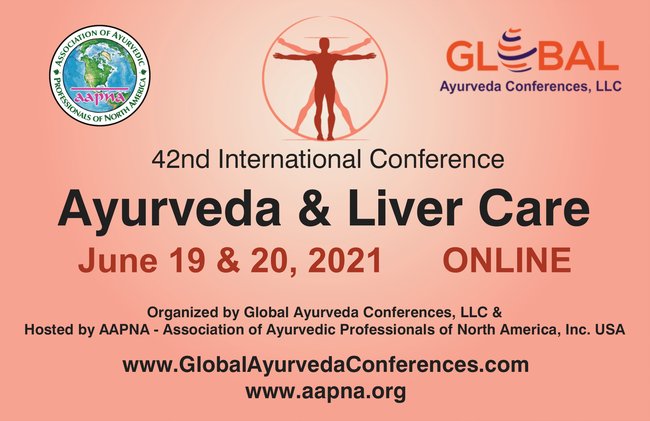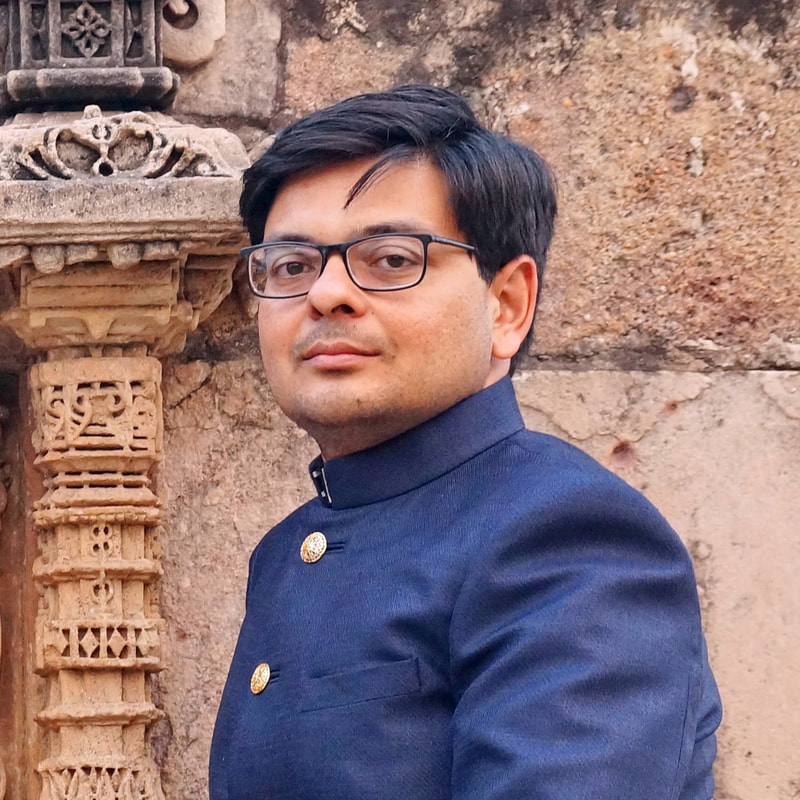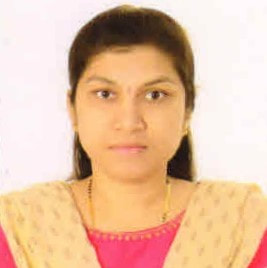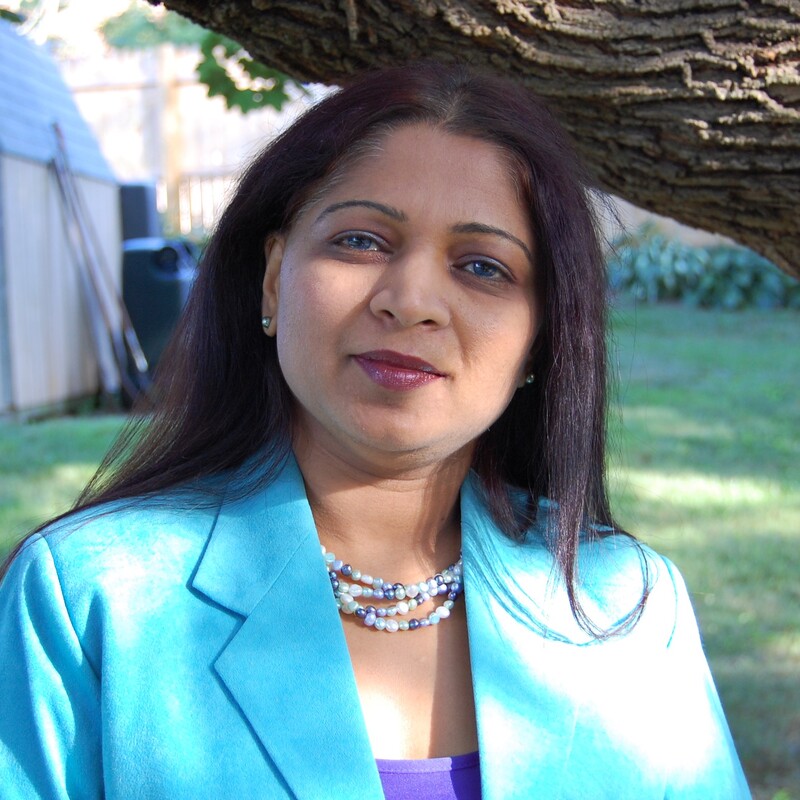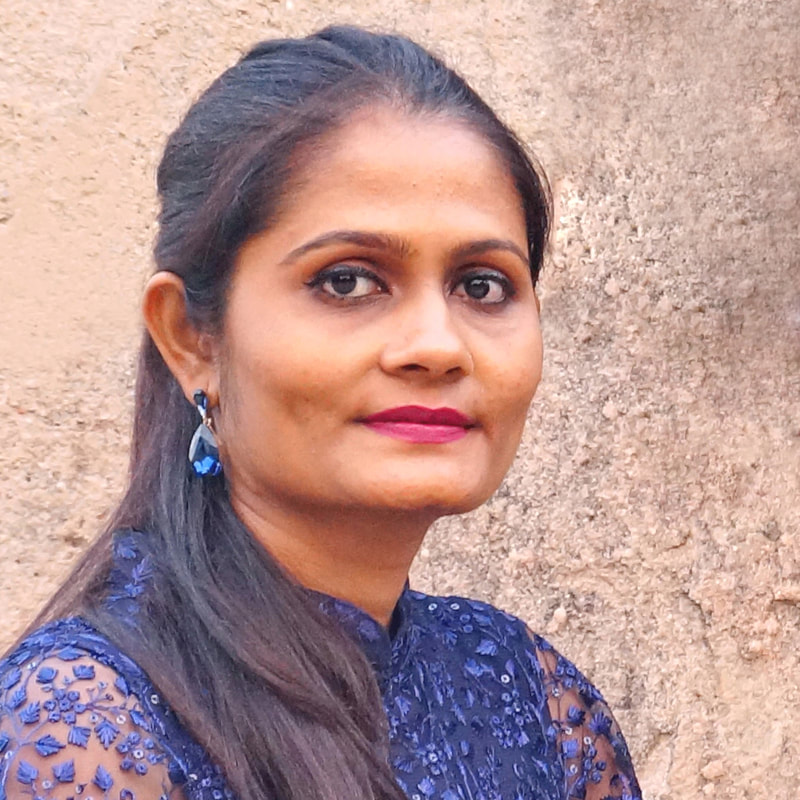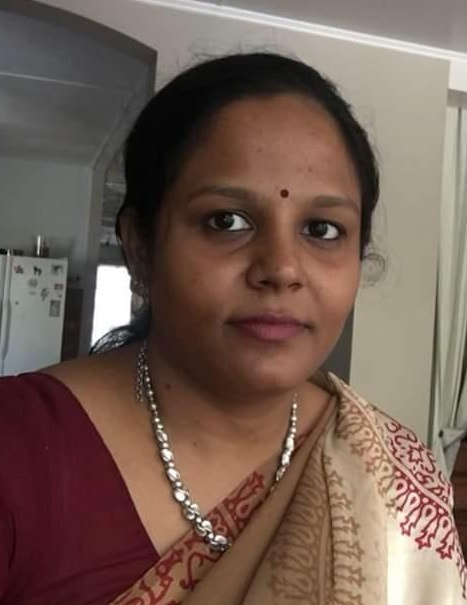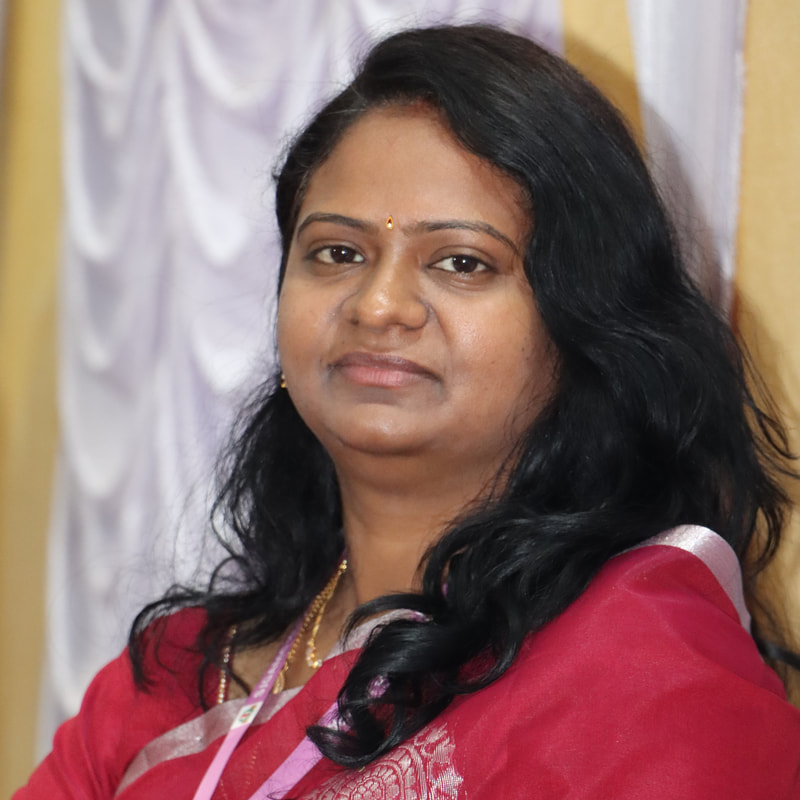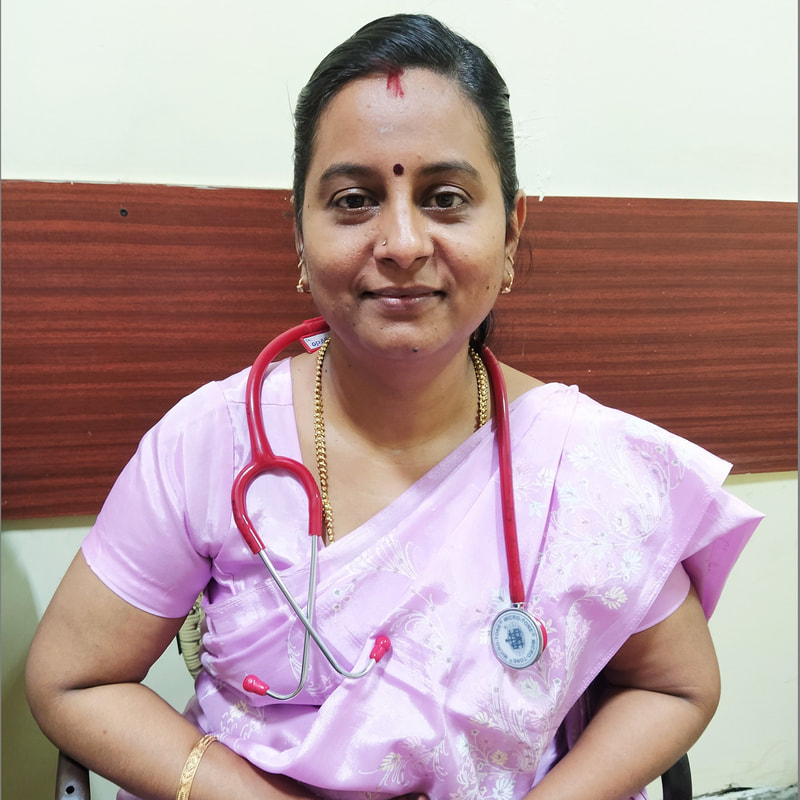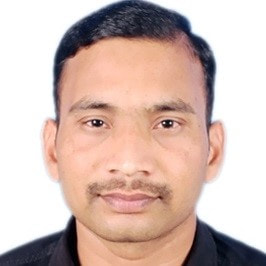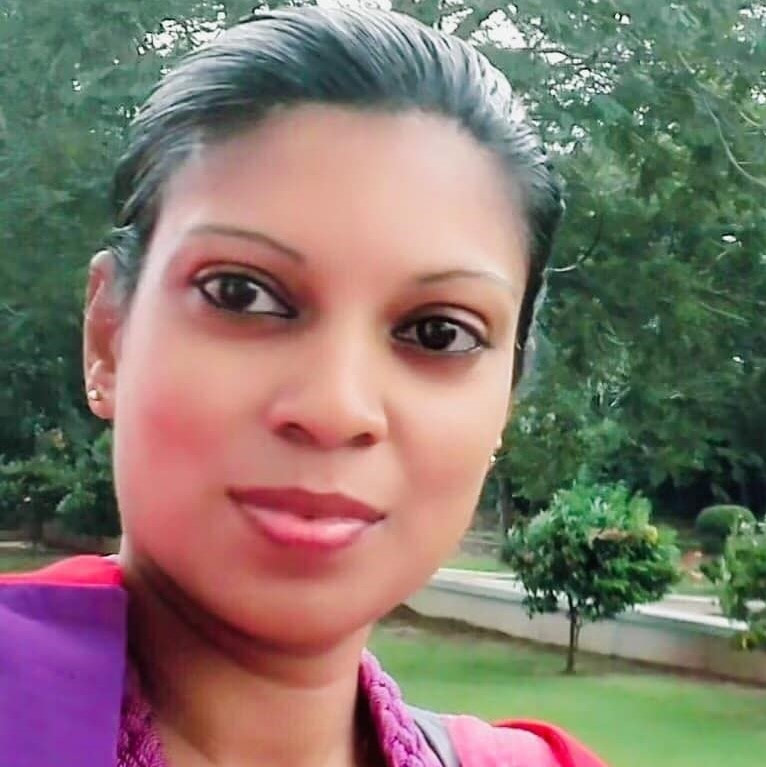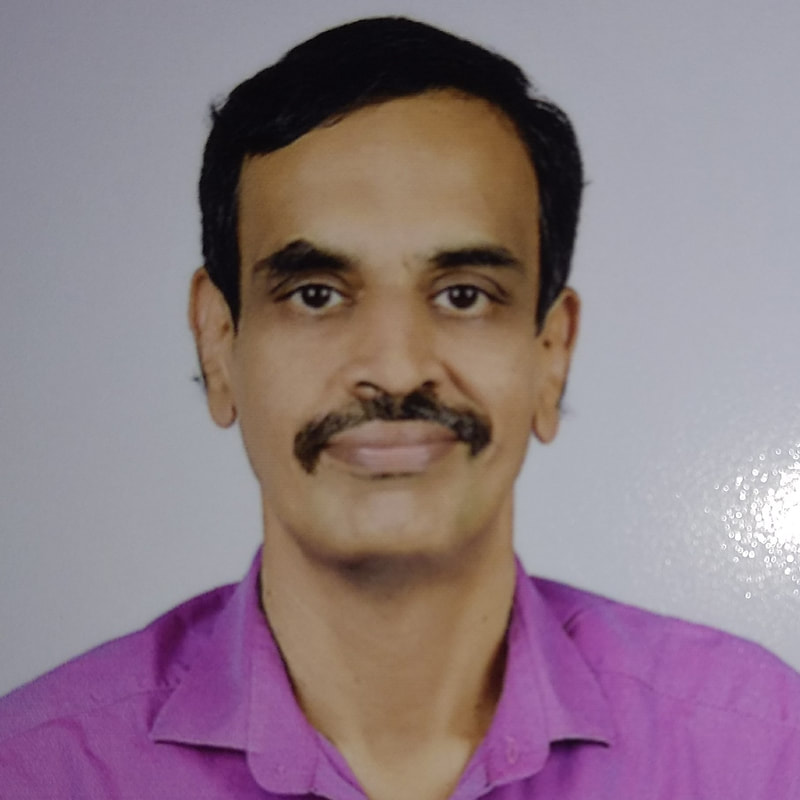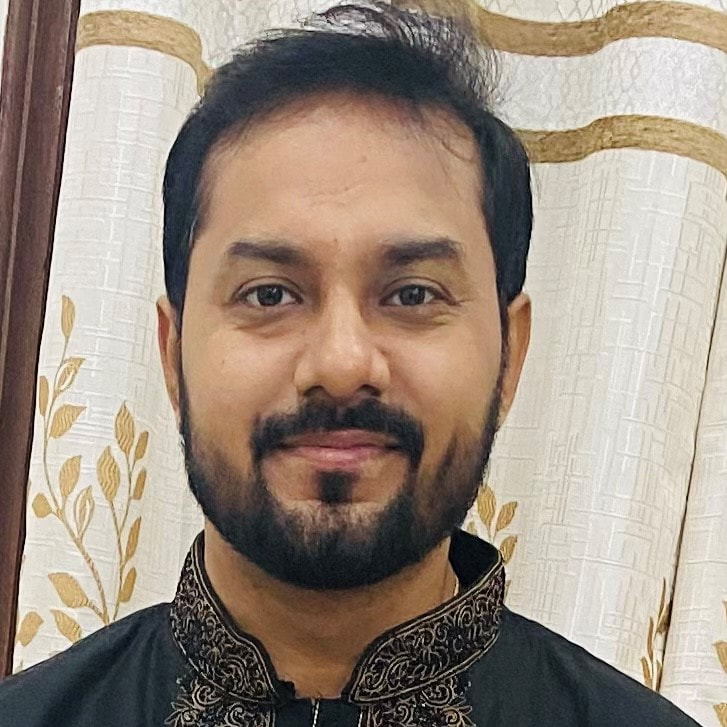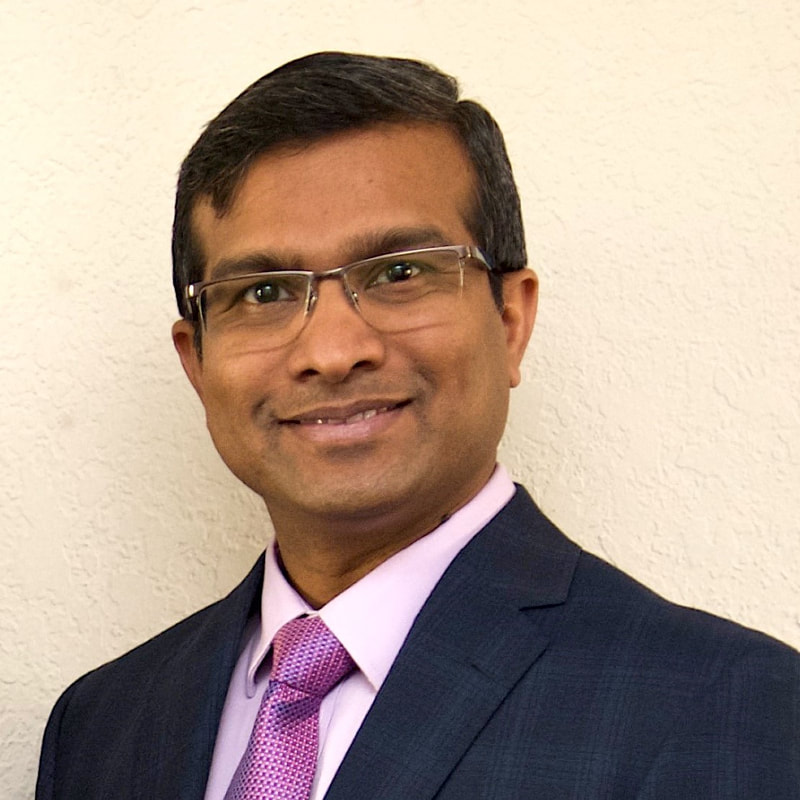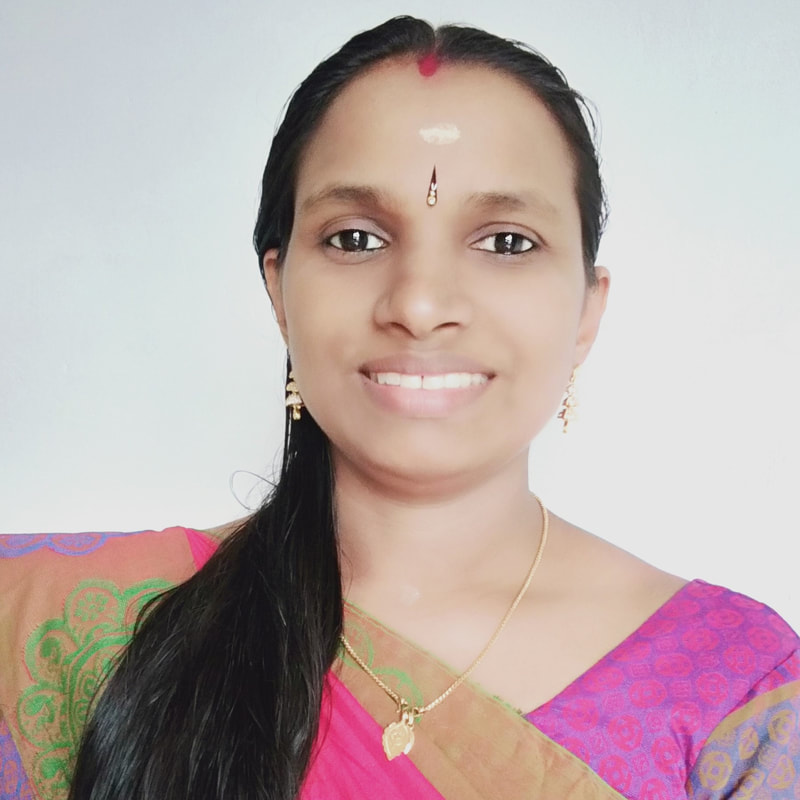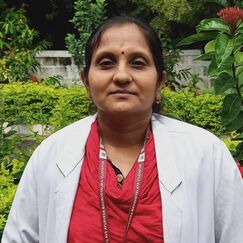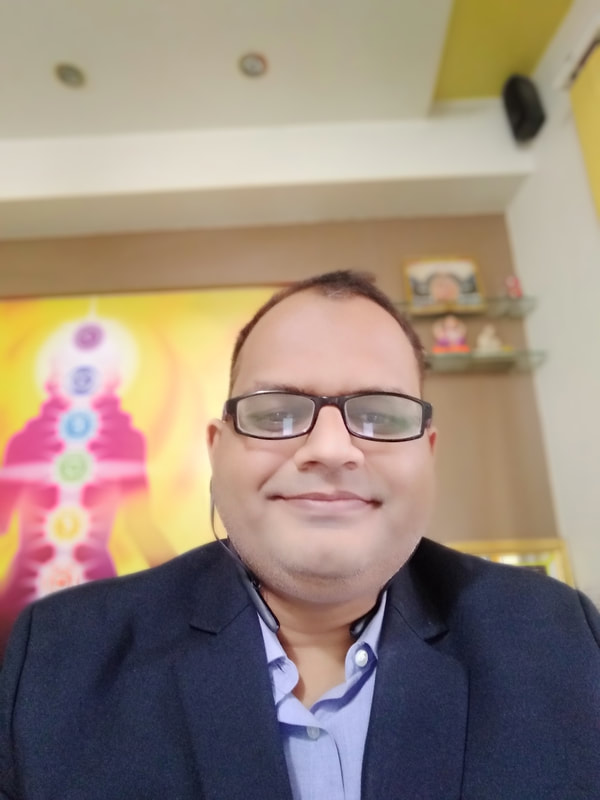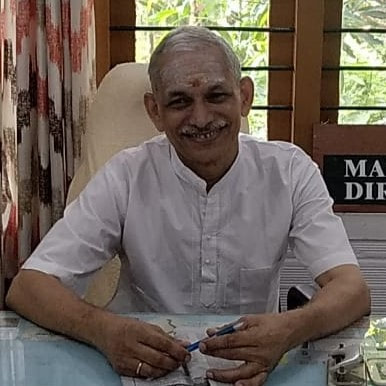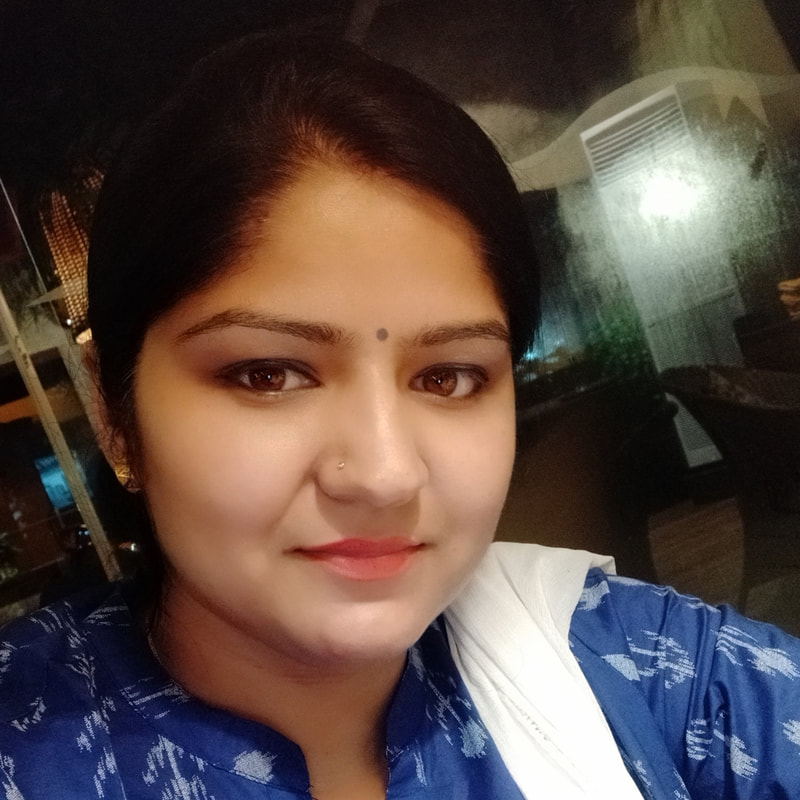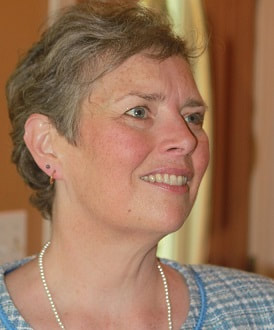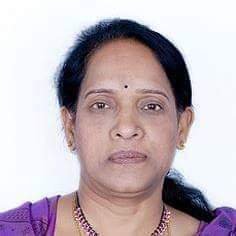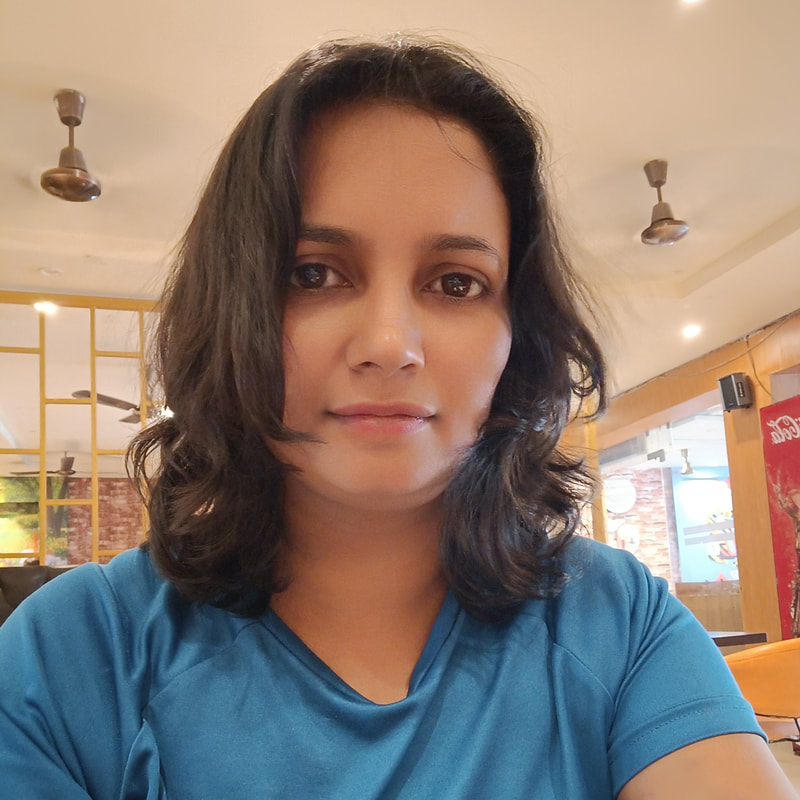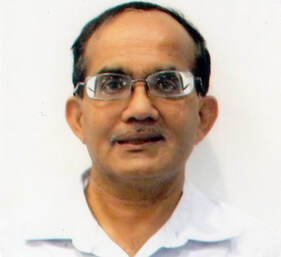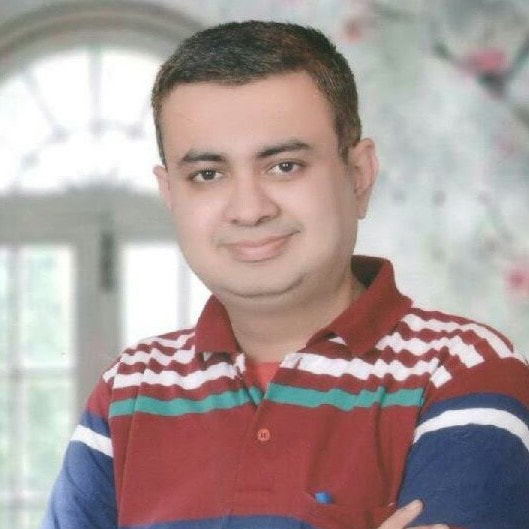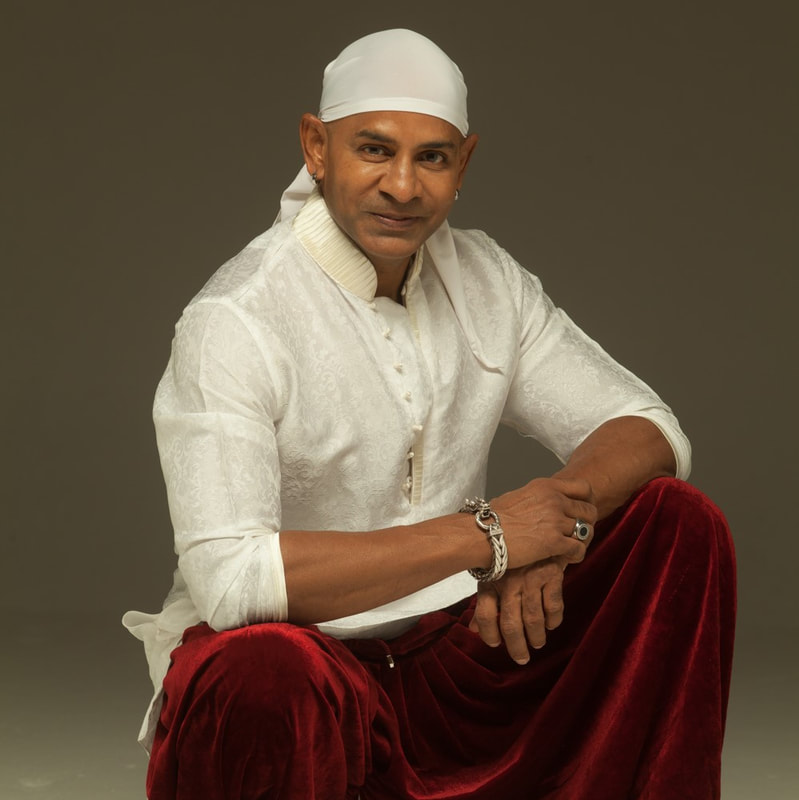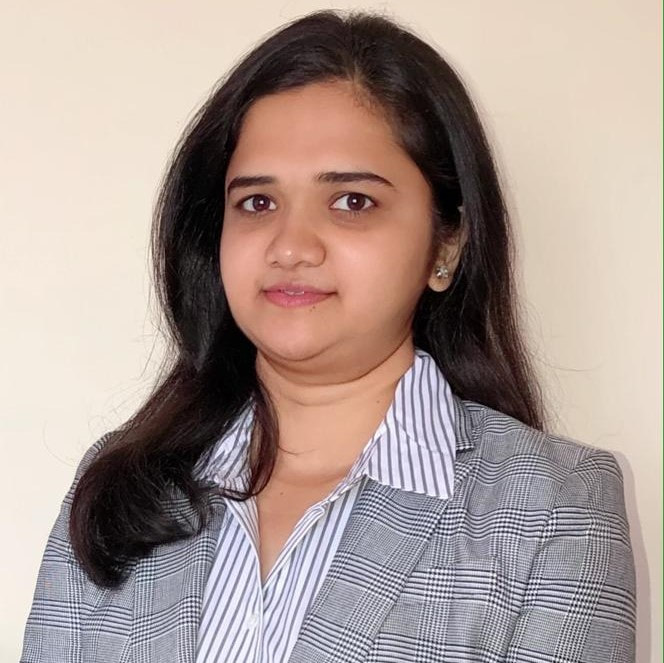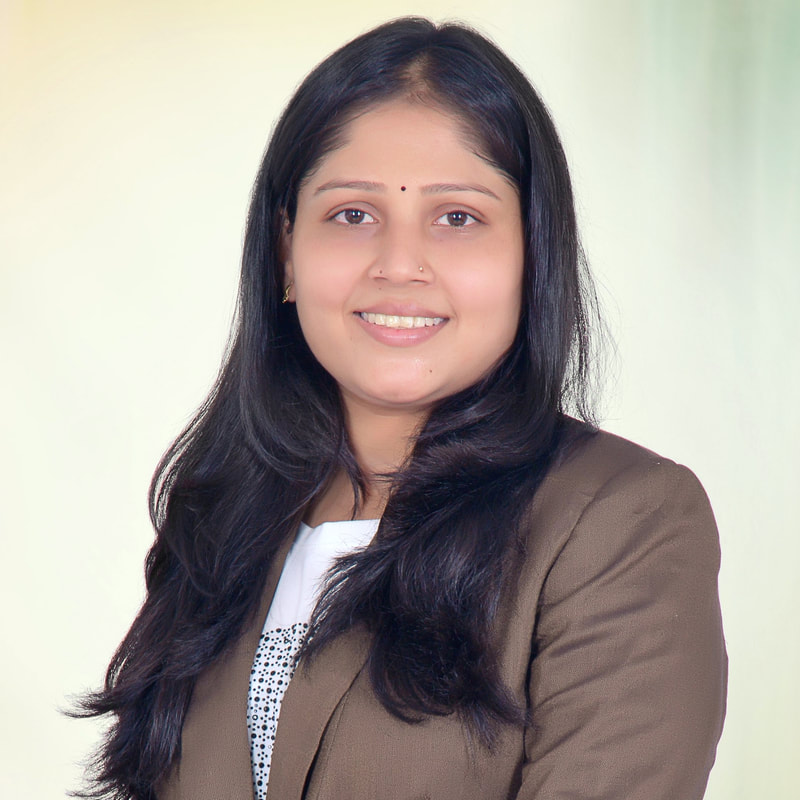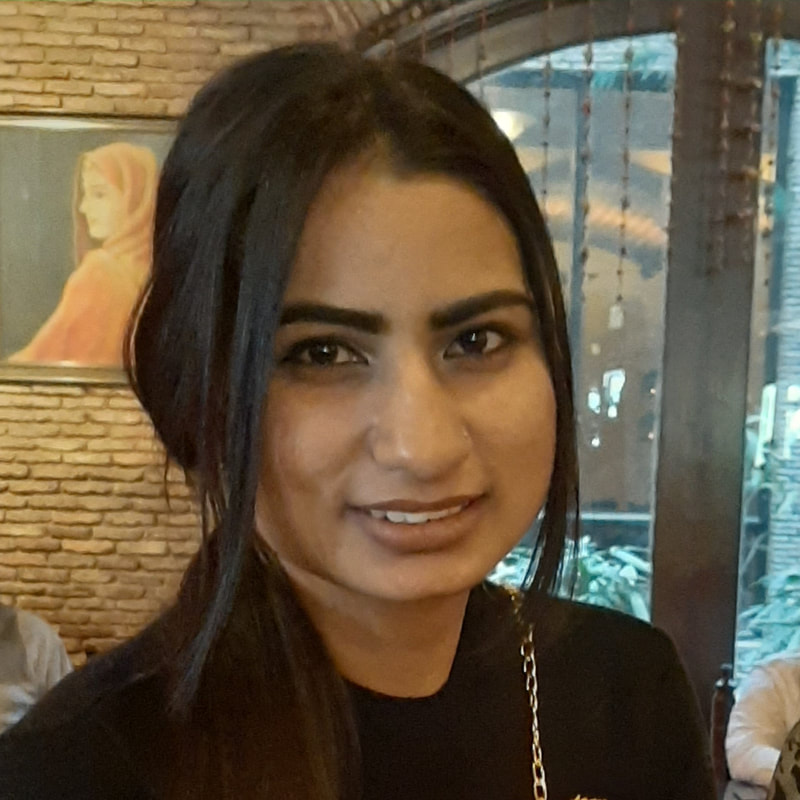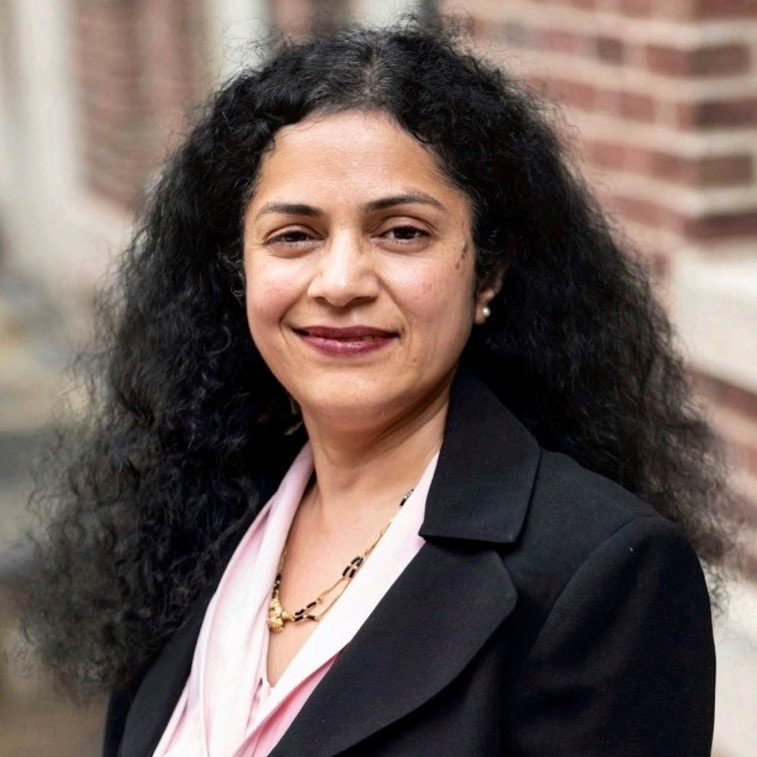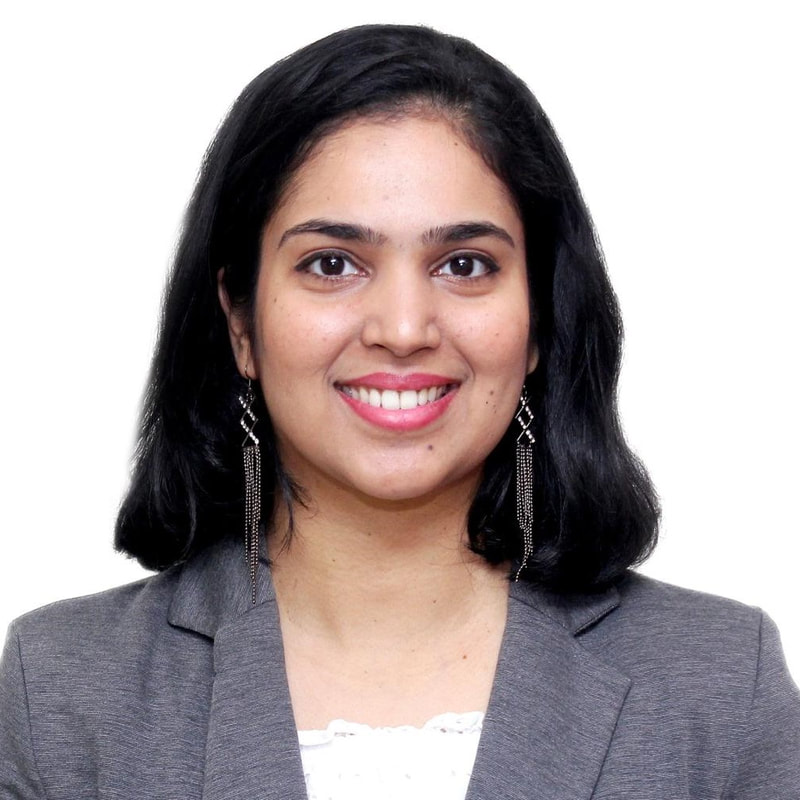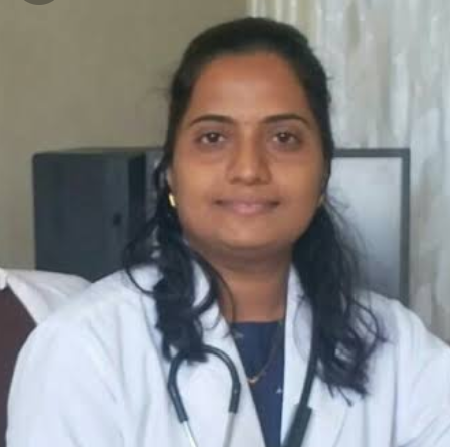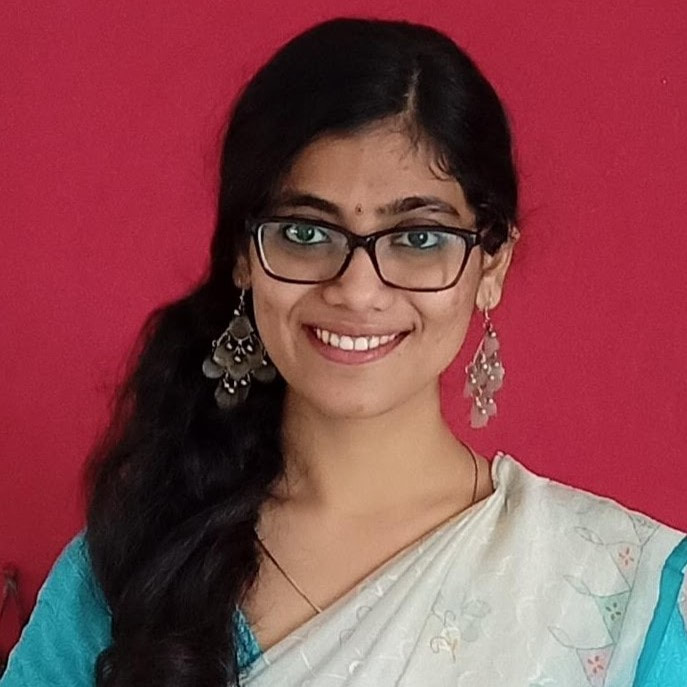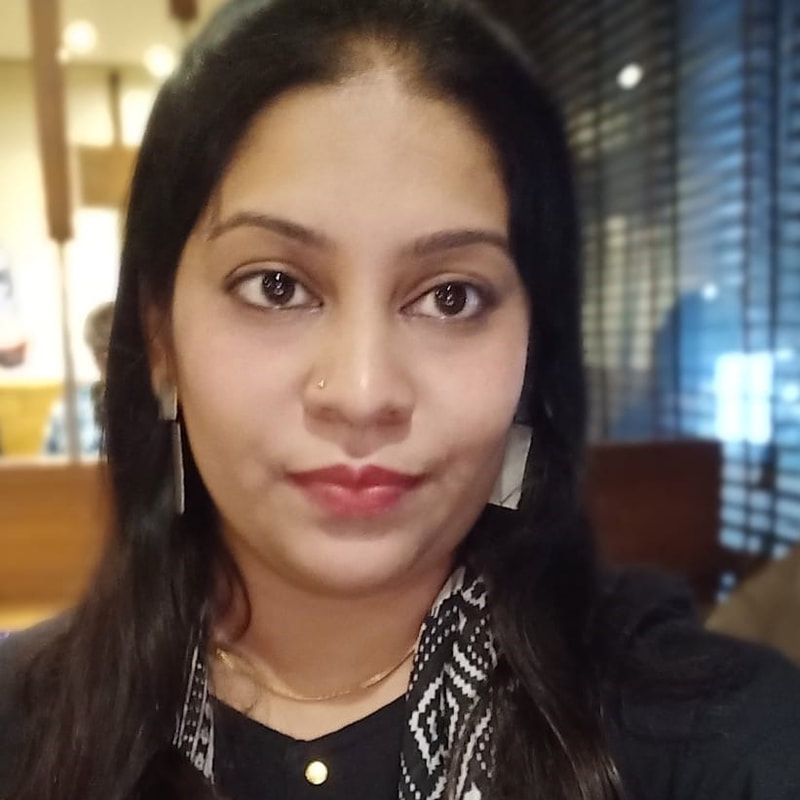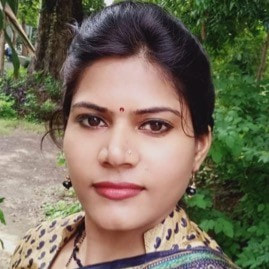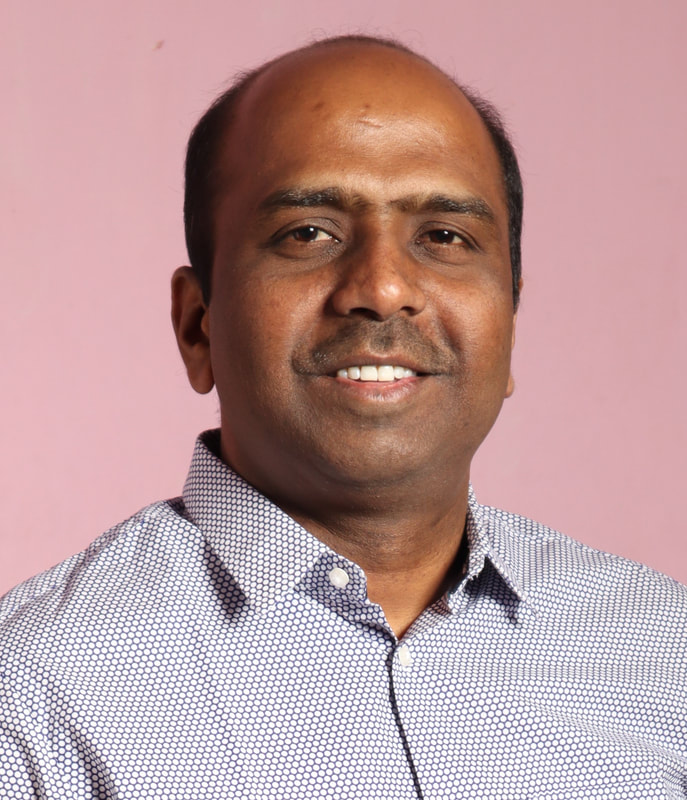About the Conference
18.0 PACE (Professional Ayurvedic Continuing Education) Credits from AAPNA (Association of Ayurvedic Professionals of North America, Inc. USA
- Ayurveda & Liver Care
Featured Speakers
from USA, India, South Africa, Thailand
Tentative Conference Schedule
Saturday, June 19, 2021
Conference Time: ET (Eastern Time) (New York Time)
Conference Starts: 5:00 am PT / 6:00 am MT / 7:00 am CT / 8:00 am ET/ 5:30 pm IST
Conference Time: ET (Eastern Time) (New York Time)
Conference Starts: 5:00 am PT / 6:00 am MT / 7:00 am CT / 8:00 am ET/ 5:30 pm IST
Time |
Topic |
Speaker |
08:00 am - 08:30 am |
Ayurveda Management of Alcoholic Liver Cirrhosis |
Dr. Krup Vasavda, BAMS, MD (Ayu), Gujarat, India |
08:30 am - 09:00 am |
Diagnostic & Therapeutic Domains of Liver Disorders |
Dr. Ashwini Sajjanavar, BAMS, MD (Ayu), Karnataka, India |
09:00 am - 09:30 am |
Ayurvedic Perspective of Liver |
Dr. Jaya Daptardar, BAMS, MHA, Connecticut, USA |
09:30 am - 10:00 am |
Hepato Protective Herbs Used in Liver Disorders |
Dr. Vaishali Vasavda, BAMS, MS (Ayu), Gujarat, India |
10:00 pm - 10:30 am |
Management of Hepatitis C through Ayurveda |
Dr. Lakshmi Lakshmanan, BAMS, Rajasthan, India |
10:30 am - 11:00 am |
Wilson disease- A case study in Ayurvedic perspective |
Dr. Radhika Injamuri, BAMS, MD (Ayu), Karnataka, India |
11:00 am - 11:30 am |
Ayurvedic Management of NASH (Non Alcoholic Steato Hepatitis) related Cirrhosis of Liver- Yakrit Vikara - A single case study |
Dr. Senthil Rani Gopalaswamy, BAMS, Tamil Nadu, India |
11:30 am - 12:00 pm |
Ayurvedic Management of Viral Hepatitis |
Dr. Suryanarayana Mudadla, BAMS, MD (Ayu), Karnataka, India |
12:00 pm - 12:30 pm |
Crigler Najjar-syndrome & Ayurveda |
Dr. Zenab Damaniya, BAMS, Maharashtra, India |
12:30 pm - 01:00 pm |
Therapeutic effects of Yoga for non alcoholic fatty liver disease |
Dr. H.K.B. M.S. Karunaratne, BAMS, MD (Ayu), Colombo, Sri Lanka |
01:00 pm - 01:30 pm |
Ayurveda management of Alcoholic Liver Disease |
Dr. Shripathi Acharya, BAMS, MD (Ayu), PhD (Ayu), Karnataka, India |
01:30 pm - 02:00 pm |
Neonatal Jaundice and Ayurvedic Management |
Dr. Rashi Sharma, BAMS, MD (Ayu), PhD (Ayu), Benaras, India |
02:00 pm - 02:30 pm |
Role of Ayurveda in the Prevention and Treatment of Liver Disorders |
Dr. Nitin Juneja, BAMS, MD (Ayu), Chandigarh, India |
02:30 pm - 03:00 pm |
Ayurvedic Herbs and Formulations for hepatobiliary disparities |
Dr. Jayagopal Parla, BAMS, MD (Ayu), LAc, CMT, MAOM, California, USA |
03:00 pm - 03:30 pm |
Importance of Panchakarma In liver care |
Dr. Dhanya Radhakrishnan, BAMS, Kerala, India |
03:30 pm - 04:00 pm |
Autoimmune Hepatitis - An overview in Ayurveda |
Dr. Seeta Birader, BAMS, MD (Ayu), Karnataka, India |
04:00 pm - 04:30 pm |
Non Alcoholic liver cirrhosis and ayurvedic management |
Dr. Kamlesh Mahajan, BAMS, MD (Ayu), Maharashtra, India |
04:30 pm - 05:00 pm |
Ayurveda and Liver Care |
Dr. Eeswari Reddy, BAMS, South Africa |
Sunday, June 20, 2021
Conference Time: ET (Eastern Time) (New York Time)
Conference Starts: 5:00 am PT / 6:00 am MT / 7:00 am CT / 8:00 am ET/ 5:30 pm IST
Conference Time: ET (Eastern Time) (New York Time)
Conference Starts: 5:00 am PT / 6:00 am MT / 7:00 am CT / 8:00 am ET/ 5:30 pm IST
Time |
Topic |
Speaker |
08:00 am - 08:30 am |
Managing liver problems by traditional Ayurveda medicines |
Dr. C.M. Sreekrishnan, BSAM, MD-Ayu, Kerala, India |
08:30 am - 09:00 am |
Ayurveda Perspective and Management of Intrahepatic cholestasis during Pregnancy |
Dr. Anjali Verma, BAMS, MS-Ayu, Uttarakhand, India |
09:00 am - 09:30 am |
Ahara & Vihara For Non-Alcoholic Fatty Liver |
Mary Sullivan, MA Massachusetts, USA |
09:30 am - 10:00 am |
Hepatitis B - Ayurveda Management - Global Solution |
Dr. Shantala Priyadarshini, BAMS, MD-Ayu, Karnataka, India |
10:00 pm - 10:30 am |
Turmeric/Curcumins for the healthy liver and prevention of liver diseases |
Dr. Nagabhushan Moolky, PhD, Illinois, USA |
10:30 am - 11:00 am |
Ayurveda remedies for fatty liver |
Dr. Bhargav Mehta, BAMS, MD-Ayu, Gujarat, India |
11:00 am - 11:30 am |
Yoga for Liver Detox |
Master Kamal Srinivas, PhD Thailand |
11:30 am - 12:00 pm |
Rasayana: Revitalizing the Liver |
Dr. Swarda Uppin, BAMS, MD-Ayu, Karnataka, India |
12:00 pm - 12:30 pm |
Role of Ayurveda in Non Alcoholic Fatty Liver Disease |
Dr. Drashti Parikh, BAMS, MD-Ayu, PGDYN, New Jersey, USA |
12:30 pm - 01:00 pm |
Liver detoxification through Panchkarma |
Dr. Sakshi, BAMS, MD-Ayu, Punjab, India |
01:00 pm - 01:30 pm |
Holistic Approach to NFLD-Non Alcoholic Fatty Liver Disease |
Dr. Asavari Manvikar, BAMS, MD-Ayu, Minnesota, USA |
01:30 pm - 02:00 pm |
Shodhana Chikitsa in Non-Alcoholic Fatty Liver Disease |
Dr. Devika Deshmukh, BAMS, MD-Ayu, Maharahstra, India |
02:00 pm - 02:30 pm |
Ayurvedic Management of Alcoholic liver disease with ascites: A Case Report |
Dr. Suketha Shetty, BAMS, MD-Ayu, Karnataka, India |
02:30 pm - 03:00 pm |
Ayurveda medicines for liver care |
Dr. Harshitha Iyengar, BAMS, Karnataka, India |
03:00 pm - 03:30 pm |
Intra hepatic Cholestasis of Pregnancy (ICP) and Ayurveda |
Dr. Nilofar Shaikh, BAMS, MS-Ayu, Gujarat, India |
03:30 pm - 04:00 pm |
Ayurvedic Key Management of Liver Cirrhosis |
Dr. Rashmi Gupta, BAMS, MS-Ayu, PhD-Ayu, Uttar Pradesh, India |
04:00 pm - 04:30 pm |
Biliary colic and calculi & Ayurvedic interventions |
Dr. Sathyanarayana Dornala, BAMS, MD-Ayu, PhD-Ayu, New Delhi, India |
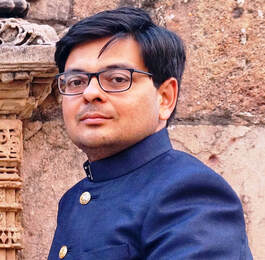
Krup Vasavda, BAMS, MD-Ayu, Gujarat, India - is working as Associate professor Department of Agadtantra in J S Ayurveda College, Nadiad, Gujarat, India. Presently he is pursuing Ph D from Parul University, Vadodara. He is a Review Board Member Gavin Publication and 8th WAC. He obtained his UG from Govt. Akhandanand Ayurveda College & Hospital, Ahmedabad, and Gujarat, India. He obtained his PG from Sri Dharmasthala Manjunatheshwara College of Ayurveda & Hospital, Hassan, India. He is expert in yoga and naturopathy. He is a practicing Ayurvedic physician and specialty in Ayurvedic management of Diabetes mellitus. He is a specialist of pain management by various Ayurveda therapies. He has published many papers in nation and international peer reviewed journals. He is Post graduate Diploma in Clinical Research and Clinical Data Management from ICBio, Banglore. He is a supporting member of AAPNA, USA.
Topic: Ayurveda Management of Alcoholic Liver Cirrhosis
Abstract: Alcoholic liver disease is an inflammatory condition of the liver. It’s caused by excessive alcohol consumption over an extended period of time. Genetics, other liver disorders, and nutrition may also contribute to alcoholic Liver Disease. Alcoholic liver cirrhosis is the most advance feature of Alcoholic liver diseases (ALD) and accounts worldwide 48% of cirrhosis associated death. Ayurveda is a holistic system of medicine in which a number of drugs with multifold beneficial actions are mentioned and can prove to be beneficial for the patients suffering from ALD. Though a massive research is required to prove the beneficial effects of drugs. The diet, Yoga, life style, herbo-mineral medications along with Panchakarma procedures are dealt separately with evidence.
Topic: Ayurveda Management of Alcoholic Liver Cirrhosis
Abstract: Alcoholic liver disease is an inflammatory condition of the liver. It’s caused by excessive alcohol consumption over an extended period of time. Genetics, other liver disorders, and nutrition may also contribute to alcoholic Liver Disease. Alcoholic liver cirrhosis is the most advance feature of Alcoholic liver diseases (ALD) and accounts worldwide 48% of cirrhosis associated death. Ayurveda is a holistic system of medicine in which a number of drugs with multifold beneficial actions are mentioned and can prove to be beneficial for the patients suffering from ALD. Though a massive research is required to prove the beneficial effects of drugs. The diet, Yoga, life style, herbo-mineral medications along with Panchakarma procedures are dealt separately with evidence.
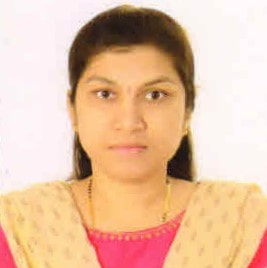
Ashwini Sajjanwar, BAMS, MD-Ayu, Karnataka, India - completed BAMS at DGM ayurvedic medical college Gadag, Karnataka and post graduated in Kaya chikitsa at SDM college of ayurveda and hospital udupi, karnataka. presented papers in more than 5 international seminars and 10 national seminars and published more than 4 international clinical research papers. Currently as a Assistant Professor at DGM Ayurveda medical college Gadag, Karnataka. I have been selected for participation in CME department of Kayachikitsa under ministry of AYUSH conducted at All India Institute of Ayurveda, New Delhi, India
Topic: Diagnostic & Therapeutic Domains of Liver Disorders
Abstract: Yakrit is considered as one of the koshtanga in human body. Yakrit is the moolasthana of raktavaha srotas which maintains the quality as well as quantity of rakta, formed in yakrit by the action of ranjakapitta on rasa dhatu. Liver being a multiple functioning organ in our body does the function of digestion, metabolism, regulation, detoxification, storage, synthesis and excretion. Descriptions are available in brihatrayis which explains the involvement of Yakrit in several disease conditions such as Pittaja Pandu, Kamala and types like Yakritdora, Yakrit vidradhi, Raktapitta, Madatyaya and Jwara. Yakrit gets affected. The global prevalence of viral hepatitis remains high, while drug-induced liver injury continues to increase as a major cause of acute hepatitis. Hence to tackle the hepatobiliary diseases, one has to enhance the concepts which are explained in classics in the context of above mentioned diseases.
Key Words: Yakrit vikara, hepatobiliary system, kamala chikitsa, annavaha srotas.
Topic: Diagnostic & Therapeutic Domains of Liver Disorders
Abstract: Yakrit is considered as one of the koshtanga in human body. Yakrit is the moolasthana of raktavaha srotas which maintains the quality as well as quantity of rakta, formed in yakrit by the action of ranjakapitta on rasa dhatu. Liver being a multiple functioning organ in our body does the function of digestion, metabolism, regulation, detoxification, storage, synthesis and excretion. Descriptions are available in brihatrayis which explains the involvement of Yakrit in several disease conditions such as Pittaja Pandu, Kamala and types like Yakritdora, Yakrit vidradhi, Raktapitta, Madatyaya and Jwara. Yakrit gets affected. The global prevalence of viral hepatitis remains high, while drug-induced liver injury continues to increase as a major cause of acute hepatitis. Hence to tackle the hepatobiliary diseases, one has to enhance the concepts which are explained in classics in the context of above mentioned diseases.
Key Words: Yakrit vikara, hepatobiliary system, kamala chikitsa, annavaha srotas.
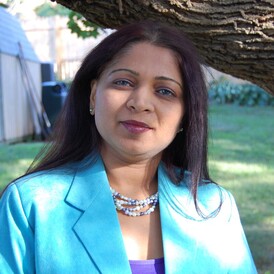
Jaya Daptardar, BAMS, MHA, Connecticut, USA - is an entrepreneur, healthcare executive, speaker, writer, actor and a leader. She is an Ayurvedic doctor and has Masters in Healthcare Administration & Management in USA. She is an author of three books, “Aging Gracefully”, “Ayurveda’s Wisdom for Management of Pain and Addiction” and “Be Beautiful Inside Out”. She is a licensed Esthetician and passionate for beauty care in Ayurveda. She has her own herbal creation of beauty and other products. She is a recipient of DHARMA award from Association of Ayurvedic professionals of North America. She has been featured in multiple Magazines, Newspapers, TV and YouTube channels. She is a CEO and founder of Ayurveda and Yoga LLC. Practicing and teaching Ayurveda in US for over 20 years. Besides her work in Ayurveda and wellness world, she also works as a Chief Operating Officer of a healthcare company.
Topic: Ayurvedic Perspective of Liver
Abstract: The liver is endlessly filtering and detoxifying the blood and it plays a significant role in digestion and metabolism. But the liver also synthesizes protein, produces critically important enzymes and hormones, breaks down and recycles tired blood cells, and regulates glycogen storage. As our primary organ of detoxification, the liver has the important job of protecting the deeper tissues from impurities in the blood that might otherwise cause harm. However, over-exposure to toxins such as alcohol, prescription or recreational drugs, environmental pollutants, and the like, has the potential to adversely impact the liver itself. The liver possesses a remarkable ability to heal and rejuvenate itself. This is something that sets the liver apart from other organs and tissues. But if we want the liver to repair itself efficiently, we must offer it periodic rest. This resource is intended to provide some practical guidance on how to encourage the overall health and rejuvenation of the liver—both in our daily lives and in more focused periods of cleansing and detoxification.
Topic: Ayurvedic Perspective of Liver
Abstract: The liver is endlessly filtering and detoxifying the blood and it plays a significant role in digestion and metabolism. But the liver also synthesizes protein, produces critically important enzymes and hormones, breaks down and recycles tired blood cells, and regulates glycogen storage. As our primary organ of detoxification, the liver has the important job of protecting the deeper tissues from impurities in the blood that might otherwise cause harm. However, over-exposure to toxins such as alcohol, prescription or recreational drugs, environmental pollutants, and the like, has the potential to adversely impact the liver itself. The liver possesses a remarkable ability to heal and rejuvenate itself. This is something that sets the liver apart from other organs and tissues. But if we want the liver to repair itself efficiently, we must offer it periodic rest. This resource is intended to provide some practical guidance on how to encourage the overall health and rejuvenation of the liver—both in our daily lives and in more focused periods of cleansing and detoxification.
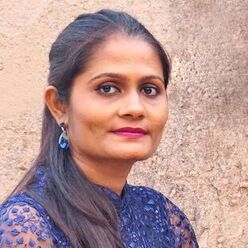
Vaishali Vasavda, BAMS, MS-Ayu, Gujarat, India - is working as Assistant professor Department of Prasuti Tantra and Stree Roga, J S Ayurveda College, Nadiad, Gujarat, India. She is an international Speaker too. She is a member in Syllabus Drafting Committee, CCIM, India. She is an Post graduate examiner in Various other universities. She obtained her UG and PG from Sri Kalabyraveshwara Swamy Ayurvedic Medical College and Research Centre, Bangalore, Karnataka, India. Her Subject of Specialization is Prasuti Tantra and Stree Roga. She is practicing Ayurvedic physician and specialty in Ayurvedic management of Gynecological Disorders. Her subject of interest is common gynaecological disorders, genetics, and Garbhasamskara. She has an expertise in pain management by various Ayurveda therapies. She has published many papers in national and international peer reviewed journals. Dr. Vaishali Vasavda is a supporting member of AAPNA, USA.
Topic: Hepato Protective Herbs Used in Liver Disorders
Abstract: The liver is endlessly filtering and detoxifying the blood and it plays a significant role in digestion and metabolism. But the liver also synthesizes protein, produces critically important enzymes and hormones, breaks down and recycles tired blood cells, and regulates glycogen storage. As our primary organ of detoxification, the liver has the important job of protecting the deeper tissues from impurities in the blood that might otherwise cause harm. However, over-exposure to toxins such as alcohol, prescription or recreational drugs, environmental pollutants, and the like, has the potential to adversely impact the liver itself. The liver possesses a remarkable ability to heal and rejuvenate itself. This is something that sets the liver apart from other organs and tissues. But if we want the liver to repair itself efficiently, we must offer it periodic rest. This resource is intended to provide some practical guidance on how to encourage the overall health and rejuvenation of the liver—both in our daily lives and in more focused periods of cleansing and detoxification.
Topic: Hepato Protective Herbs Used in Liver Disorders
Abstract: The liver is endlessly filtering and detoxifying the blood and it plays a significant role in digestion and metabolism. But the liver also synthesizes protein, produces critically important enzymes and hormones, breaks down and recycles tired blood cells, and regulates glycogen storage. As our primary organ of detoxification, the liver has the important job of protecting the deeper tissues from impurities in the blood that might otherwise cause harm. However, over-exposure to toxins such as alcohol, prescription or recreational drugs, environmental pollutants, and the like, has the potential to adversely impact the liver itself. The liver possesses a remarkable ability to heal and rejuvenate itself. This is something that sets the liver apart from other organs and tissues. But if we want the liver to repair itself efficiently, we must offer it periodic rest. This resource is intended to provide some practical guidance on how to encourage the overall health and rejuvenation of the liver—both in our daily lives and in more focused periods of cleansing and detoxification.
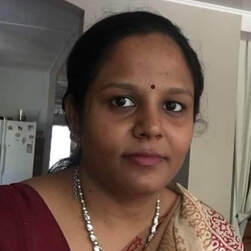
Lakshmi Lakshmanan, BAMS, Rajasthan, India - has completed her Bachelor of Ayurveda Medicine & Surgery (BAMS) from Dr. MGR Medical University, Tamil Nadu in the year 2009. She has 10 years of experience in the field of Ayurveda and is working with Chakrapani Ayurveda Center as Ayurveda Consultant & Head of Panchakarma Department since December 2012. She is a nodal person from Chakrapani Centre to work for Ayurveda intervention to AIDS affected children since last 7 years. She has developed an Ayurveda formulation named as “Ojas Avaleha” for these children and it had contributed immensely in improving quality of life of such children. She has contributed a course topic on “A Traditional Medicine System: Basics of Ayurveda” in NIIM's online short course in Integrative Medicine, Australia. She has been travelling to Bordeaux, France for Ayurveda consultations and workshops since 2017. She is a regular writer of articles in Global Ayurveda Magazine and column in ‘AyurvedSutra’ Magazine.
Topic: Management of Hepatitis C through Ayurveda
Abstract: Human body is the most complex system created by nature and liver is the important organ as it performs functions which are crucial to sustaining life. As liver interacts with other body systems, it is considered the mother of all glands. Liver performs various activities, hence it is more vulnerable to infection and trauma. Hepatitis C is one among the vast number of ailments of liver caused due to infection by Hepatitis C Virus and affects the liver adversely causing acute and chronic liver infections. Conventional treatment with promising results are not available till date which is why Ayurveda treatment for Hepatitis C has gained attention in the recent years. The multi-modal approach through Ayurveda using herbs, therapies, diet, yoga and exercise possibly inhibits HCV virus helps to optimize liver function, enhance immunity, increase vitality and improve overall health. Ayurveda Panchakarma treatments help to protect, detoxify and restore the functions of liver. Herbs have antioxidant and hepato-protective effects thus improving liver health and immunity. Diet and lifestyle enhance efficacy of Ayurveda treatment. In this presentation, we will see in detail about the safe and effective Ayurvedic treatment modalities for Hepatitis C.
Topic: Management of Hepatitis C through Ayurveda
Abstract: Human body is the most complex system created by nature and liver is the important organ as it performs functions which are crucial to sustaining life. As liver interacts with other body systems, it is considered the mother of all glands. Liver performs various activities, hence it is more vulnerable to infection and trauma. Hepatitis C is one among the vast number of ailments of liver caused due to infection by Hepatitis C Virus and affects the liver adversely causing acute and chronic liver infections. Conventional treatment with promising results are not available till date which is why Ayurveda treatment for Hepatitis C has gained attention in the recent years. The multi-modal approach through Ayurveda using herbs, therapies, diet, yoga and exercise possibly inhibits HCV virus helps to optimize liver function, enhance immunity, increase vitality and improve overall health. Ayurveda Panchakarma treatments help to protect, detoxify and restore the functions of liver. Herbs have antioxidant and hepato-protective effects thus improving liver health and immunity. Diet and lifestyle enhance efficacy of Ayurveda treatment. In this presentation, we will see in detail about the safe and effective Ayurvedic treatment modalities for Hepatitis C.
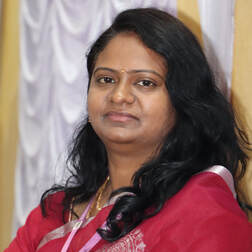
Radhika Injamuri, BAMS, MD-Ayu, Karnataka, India - presently working as associate professor in postgraduate department of Kaumarabhritya, SJG Ayurvedic medical college, Koppal, Karnataka, India. Holding 10years of clinical experience in the field of Ayurveda and 5years experience in teaching and training of postgraduate scholars of Kaumarabhritya (Ayurvedic pediatrics). Dissertation Topic: "Efficacy of Dhatryadi Kwatha and Aparajitha Lepa in Switra” Have 8 publications in various International journals. Presented various scientific papers and had been guest speaker at different platforms.
Administrative Responsibilities: 1.Holding the responsibility as UG CO-ORDINATOR for III BAMS , SJGAMC, Koppal from 01-07-2016. 2.Faculty of EAA (Europe Ayurveda Academy) 3. Individual affiliate for WABA, Malaysia in 2021
Topic: Wilson disease- A case study in Ayurvedic perspective
Abstract: Wilson disease also known as hepatolenticular degeneration is an autosomal recessive disorder that can be associated with degenerative changes in the brain, liver and Kayser-Fleischer rings in the cornea. The incidence is 1/ 5000 to 1/100000 births and occurs due to accumulation of copper. It is progressive and potentially fatal if untreated. Rapid diagnostic investigation of the possibility of Wilson disease in a patient presenting with any form of liver disease, particularly if > 5year of age , not only facilitates early institution of management of Wilson disease and related genetic counseling but also allows appropriate treatment. In the full paper Ayurvedic approach and various herbal drugs used in the management of Wilson disease will be dealt in detail.
Administrative Responsibilities: 1.Holding the responsibility as UG CO-ORDINATOR for III BAMS , SJGAMC, Koppal from 01-07-2016. 2.Faculty of EAA (Europe Ayurveda Academy) 3. Individual affiliate for WABA, Malaysia in 2021
Topic: Wilson disease- A case study in Ayurvedic perspective
Abstract: Wilson disease also known as hepatolenticular degeneration is an autosomal recessive disorder that can be associated with degenerative changes in the brain, liver and Kayser-Fleischer rings in the cornea. The incidence is 1/ 5000 to 1/100000 births and occurs due to accumulation of copper. It is progressive and potentially fatal if untreated. Rapid diagnostic investigation of the possibility of Wilson disease in a patient presenting with any form of liver disease, particularly if > 5year of age , not only facilitates early institution of management of Wilson disease and related genetic counseling but also allows appropriate treatment. In the full paper Ayurvedic approach and various herbal drugs used in the management of Wilson disease will be dealt in detail.
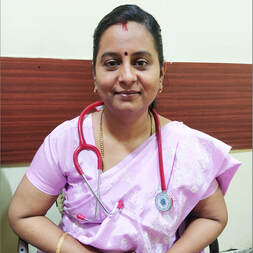
Senthil Rani Gopalaswamy, BAMS, Tamil Nadu, India - working as a Senior Medical Officer in Arya Vaidya Chikitsalayam, Coimbatore. I have completed by BAMS from Jayendra Saraswathi Ayurveda Medical College from Chennai. I have also done a diploma course on Food and Nutrition from Annamalai university , Chidambaram. I have 15 years of clinical experience in various disorders. Given various CME programs in our institution AVCRI. Was a resource person in Ayu GOTRA (Gynecological Seminar) in year 2019.
Topic: Ayurvedic management of NASH (Nonalcoholic Steatohepatitis) related Cirrhosis of Liver- A Yakrit Vikaram - A single case study.
Abstract: Liver cirrhosis is one of the major health issue, of which majority of conditions can be prevented by early diagnosis, treatment and following healthy life style practices. Good Ahara Parinamam sustains and determines the health of an individual; Yakrit a Kostanga plays a vital role in Ahara Parinamam by conducting Digestion, Metabolism, Regulation, Detoxing, Enzyme synthesis, storage and excretion. This when affected gives rise to various disease conditions. Liver disorders presents with high morbidity and mortality rate and the conventional treatments available have more toxic actions over system and they are costly and majority conditions asks for a Liver transplantation. Non Alcoholic Steatohepatitis begins with fatty liver changes. Most of the people having a habit of eating junk foods and untimely food habits mark way for fatty liver changes which is preventable and underestimated. Also stress and untreated and un monitored elevated blood pressure can also paves way for Liver disorders. Ayurvedic intervention includes - Lifestyle modification, correction of Metabolism and providing systemic treatment, Nitya Virechanam and regular monitoring of the case.
Topic: Ayurvedic management of NASH (Nonalcoholic Steatohepatitis) related Cirrhosis of Liver- A Yakrit Vikaram - A single case study.
Abstract: Liver cirrhosis is one of the major health issue, of which majority of conditions can be prevented by early diagnosis, treatment and following healthy life style practices. Good Ahara Parinamam sustains and determines the health of an individual; Yakrit a Kostanga plays a vital role in Ahara Parinamam by conducting Digestion, Metabolism, Regulation, Detoxing, Enzyme synthesis, storage and excretion. This when affected gives rise to various disease conditions. Liver disorders presents with high morbidity and mortality rate and the conventional treatments available have more toxic actions over system and they are costly and majority conditions asks for a Liver transplantation. Non Alcoholic Steatohepatitis begins with fatty liver changes. Most of the people having a habit of eating junk foods and untimely food habits mark way for fatty liver changes which is preventable and underestimated. Also stress and untreated and un monitored elevated blood pressure can also paves way for Liver disorders. Ayurvedic intervention includes - Lifestyle modification, correction of Metabolism and providing systemic treatment, Nitya Virechanam and regular monitoring of the case.
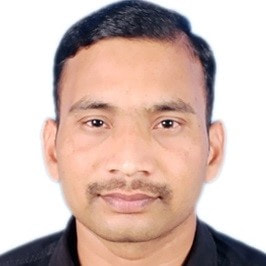
Suryanarayana Mudadla, BAMS, MD (Ayu), Karnataka, India - presently working as associate professor in postgraduate department of kaumarabhritya, SJG Ayurvedic medical college Koppal, Karnataka, India. Holding 10years of clinical experience in the field of Ayurveda and 7years experience in teaching and training of postgraduate scholars of Kaumarabhritya (Ayurvedic pediatrics). P.G Dissertation Topic: "Ayurvedic management of Duchenne Muscular dystrophy” Have 10 publications in various International journals.Presented various scientific papers and had been guest speaker at different platforms. Administrative Responsibilities: 1. Holding the responsibility as P.G CO-ORDINATOR in P.G studies, SJGAMC, Koppal from 28-06-2018, prior to that as a Assistant P.G coordinator, 2. Advisory board member of EAA (Europe Ayurveda Academy), Member of IEC SJGAMC research wing for P.G studies, Incharge of KMC (Kangaroo mother care) unit at SJGAMC ,Koppal district, Karnataka for low birth weight babies in association with NHM & GOI, External monitor for vaccination in Koppal district on behalf of WHO.
Topic: Ayurvedic Management Viral Hepatitis
Abstract: Viral hepatitis is the most common form of hepatitis caused by A, B, C, D, and E virus. Viral hepatitis poses a major public health problem in the world with a death rate of 1.35 million deaths each year. Hepatitis A and E cause acute viral hepatitis (AVH), whereas B and C can cause chronic viral hepatitis, in addition to acute infection. The treatment of hepatitis A virus and hepatitis E virus is usually symptomatic and supportive, no specific treatment is available except nutritional therapy for hepatitis as per WHO . Ayurvedic medicine definitely has a lot to offer to the society by way of improving liver health and this is quite evident from the various studies reported in literature. In Ayurveda, hepatitis or jaundice is acknowledged as Kamala roga, caused due to impairment of pitta dosha and rakta dhatu. The condition occurs due to Kostha gata Pitta, Pitta Rakta dusti, and Yakrit asrita Pitta dusti. In this condition, aggravated pitta dosha further vitiates rakta and mamsa and produces Kamala. In the full paper Ayurvedic approach and various herbal drugs used in the management of infective liver disorders will be dealt in detail.
Topic: Ayurvedic Management Viral Hepatitis
Abstract: Viral hepatitis is the most common form of hepatitis caused by A, B, C, D, and E virus. Viral hepatitis poses a major public health problem in the world with a death rate of 1.35 million deaths each year. Hepatitis A and E cause acute viral hepatitis (AVH), whereas B and C can cause chronic viral hepatitis, in addition to acute infection. The treatment of hepatitis A virus and hepatitis E virus is usually symptomatic and supportive, no specific treatment is available except nutritional therapy for hepatitis as per WHO . Ayurvedic medicine definitely has a lot to offer to the society by way of improving liver health and this is quite evident from the various studies reported in literature. In Ayurveda, hepatitis or jaundice is acknowledged as Kamala roga, caused due to impairment of pitta dosha and rakta dhatu. The condition occurs due to Kostha gata Pitta, Pitta Rakta dusti, and Yakrit asrita Pitta dusti. In this condition, aggravated pitta dosha further vitiates rakta and mamsa and produces Kamala. In the full paper Ayurvedic approach and various herbal drugs used in the management of infective liver disorders will be dealt in detail.

Zenab Damaniya, BAMS, Maharashtra, India - graduated in BAMS and post graduated in PGDCC (Germany), CCH, CSVD, CGO. Running my ayurveda wellness clinic at opera house and Peddar road in Mumbai, India
Topic: Crigler Najjar-syndrome & Ayurveda
Abstract: Its a genetic disorder of bilirubin metabolism characterized by unconjugated hyperbilirubinemia. In ayurveda Hyperbilirubinemia is been described under Kamala. So will explain the pathogenesis, prognosis, prevention and how we can manage Crigler Najjar syndrome with Ayurveda.
Topic: Crigler Najjar-syndrome & Ayurveda
Abstract: Its a genetic disorder of bilirubin metabolism characterized by unconjugated hyperbilirubinemia. In ayurveda Hyperbilirubinemia is been described under Kamala. So will explain the pathogenesis, prognosis, prevention and how we can manage Crigler Najjar syndrome with Ayurveda.
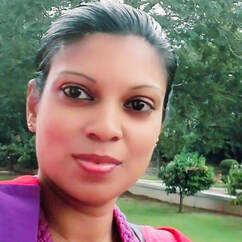
H.K.B. Minrupa Suramraji Karunaratne, BAMS, MD-Ayu, Sri Lanka -Senior Lecturer, Gampaha Wickramarachchi University of Indigenous Medicine, Sri Lanka. MD (Ayu) Swastavritta & Yoga, IIM, University of Colombo, PGD in Health Development, faculty of Medicine University of Colombo, Sri Lanka.
Topic: Therapeutic effects of Yoga for non alcoholic fatty liver disease
Abstract: Yoga is a traditional and cultural science. Ayurveda includes yoga as an ideal lifestyle and maintenance of health. There are therapeutic effects in Yoga. Ashtanga Yoga consist of Yama & Niyama(ethical rules), Asana(yogic postures), Pranayama(special breathing exercises in yoga), Prathyahara (forceful withdrawal of mind from sense objects), Dharana(concentration of mind), Dhyana (meditation) and Samadhi(absolute contemplation).They have therapeutic effects for prevent and cure from liver disorders. Therefore yoga can be used to prevent and cure non alcoholic fatty liver disease. Child pose, Locust pose, Dhanuraasana, Ardhamathsyendriyasana, Kaphalabhati Pranayama, and are can be used to prevent and cure from this disease condition.
Topic: Therapeutic effects of Yoga for non alcoholic fatty liver disease
Abstract: Yoga is a traditional and cultural science. Ayurveda includes yoga as an ideal lifestyle and maintenance of health. There are therapeutic effects in Yoga. Ashtanga Yoga consist of Yama & Niyama(ethical rules), Asana(yogic postures), Pranayama(special breathing exercises in yoga), Prathyahara (forceful withdrawal of mind from sense objects), Dharana(concentration of mind), Dhyana (meditation) and Samadhi(absolute contemplation).They have therapeutic effects for prevent and cure from liver disorders. Therefore yoga can be used to prevent and cure non alcoholic fatty liver disease. Child pose, Locust pose, Dhanuraasana, Ardhamathsyendriyasana, Kaphalabhati Pranayama, and are can be used to prevent and cure from this disease condition.
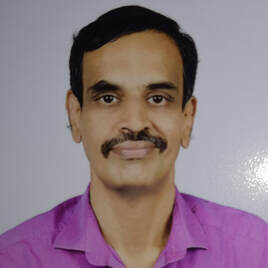
Shripathi Acharya, BAMS, MD-Ayu, PhD-Ayu, Karnataka, India - is working as Director Academics in prestigious institute Muniyal Institute of Ayurveda Medical Sciences Manipal India since 22 years. He had guided more than 15 PG scholars so far. More than 150 scientific papers are published so far and had written 14 books on Ayurveda including "Researches in Ayurveda " and "Updated Ayurveda ". He had presented research papers in 9 countries including USA, China, UK, Italy, Singapore , Thailand, Sri Lanka and Bangladesh . He had received awards like Eminent educationist award, Bangalore ,excellence in education ,Mumbai, excellence in teaching New Delhi, award of research excellence Hyderabad, Dhanvantari award, USA and best physician in Nephrology from IMS, BHU, India.
Topic: Ayurveda management of Alcoholic Liver Disease
Abstract: Alcoholic liver disease is caused due to prolonged intake of alcohol . Alcoholic liver disease is of 3 stages. They are Alcoholic steatosis, Alcoholic Hepatitis and Alcoholic cirrhosis . Ayurveda medicine has a positive role in the management of liver disorders . Hepatoprotective, hepatic stimulant, rasayana , dipana , pachana and Vyadhi pratyanika drugs and formulations are used in the management of alcoholic liver disease. Use of Pathyapathya is also very important here. Arogyavardhini vati, phalatrikadi kashaya, guduchi kashaya , bhumyalaki swarasa , kumaryasava, bhringarajasava, kakamachi swarasa and godanti bhasma are few medicines frequently used in the management of this disease . Alcoholic steatosis and alcoholic hepatitis are easier to treat by ayurveda medicine .But alcoholic cirrhosis is difficult to treat and often leads to malignancy and incurable. This paper deals with Ayurveda management of Alcoholic Liver Disease.
Topic: Ayurveda management of Alcoholic Liver Disease
Abstract: Alcoholic liver disease is caused due to prolonged intake of alcohol . Alcoholic liver disease is of 3 stages. They are Alcoholic steatosis, Alcoholic Hepatitis and Alcoholic cirrhosis . Ayurveda medicine has a positive role in the management of liver disorders . Hepatoprotective, hepatic stimulant, rasayana , dipana , pachana and Vyadhi pratyanika drugs and formulations are used in the management of alcoholic liver disease. Use of Pathyapathya is also very important here. Arogyavardhini vati, phalatrikadi kashaya, guduchi kashaya , bhumyalaki swarasa , kumaryasava, bhringarajasava, kakamachi swarasa and godanti bhasma are few medicines frequently used in the management of this disease . Alcoholic steatosis and alcoholic hepatitis are easier to treat by ayurveda medicine .But alcoholic cirrhosis is difficult to treat and often leads to malignancy and incurable. This paper deals with Ayurveda management of Alcoholic Liver Disease.

Rashi Sharma, BAMS, MD-Ayu, PhD-Ayu, Uttar Pradesh, India - working as Associate Professor ,Department of Kriya Sharir, Faculty of Ayurveda ,IMS BHU ,Varanasi ,Uttar Pradesh ,India.I have done my graduation from Ayurveda and Unani Tibbia College University of Delhi and MD, PhD from BVP University Pune, Maharashtra India. I have been honoured with Best MD thesis from International Ayurveda Association and Late saubhagyavati Laxmi Bai thatte award from All India Sharir Research Institute, Lucknow ,Uttar Pradesh. I have also received Best Teacher award 2020 from MHRD, Uttarakhand. I have published several research papers in Indexed peer reviewed International and National journals. I am author of two text books in Ayurveda as per the CCIM curriculum. Presently I am Editor in Chief of the International peer reviewed journal -IJRAHS.
Topic: Neonatal Jaundice and Ayurvedic Management
Abstract: Neonatal Jaundice is a condition which is characterized by a yellowish discoloration of skin and white portion of eyes in newborn babies due to elevated levels of unconjugated bilirubin. In some infants, serum bilirubin levels may rise excessively which is a condition of concern as unconjugated bilirubin is neurotoxic in nature and it may cause lifelong neurological defects (Kernicterus).
Topic: Neonatal Jaundice and Ayurvedic Management
Abstract: Neonatal Jaundice is a condition which is characterized by a yellowish discoloration of skin and white portion of eyes in newborn babies due to elevated levels of unconjugated bilirubin. In some infants, serum bilirubin levels may rise excessively which is a condition of concern as unconjugated bilirubin is neurotoxic in nature and it may cause lifelong neurological defects (Kernicterus).
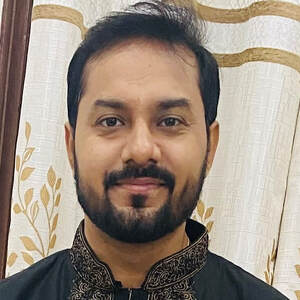
Nitin Juneja, BAMS, MD-Ayu, Chandigarh, India - presently working as an Associate Professor in the Department of Agad Tantra (Toxicology) in Saraswati Ayurveda Hospital and Medical College, Gharuan, Mohali, Punjab, India. I have actively participated as a Speaker/Resource Person in various National and International platforms by promoting Ayurveda for the betterment of humankind. I have done Live All India Radio Shows. I have also published various articles in different newspapers. I am always dedicated towards Ayurveda for its betterment.
Topic: Role of Ayurveda in the Prevention and Treatment of Liver Disorders
Abstract: Liver is one of the important organ of human body. It is responsible for removing toxins from the body, fights infections, controls cholesterol levels, and aids digestion. Any disease affecting the regular function of liver is called liver disease. There can be various causes for liver disease such as infection, physical trauma, etc. Ayurveda recognizes that balancing liver function is pivotal to ensuring overall health. In dealing with problems of the liver, the primary goal within the system of Ayurveda is to enhance liver detoxification processes and help protect against further damage to the liver. Right diet, lifestyle and herbal remedies by Ayurveda can help get good liver health.
Topic: Role of Ayurveda in the Prevention and Treatment of Liver Disorders
Abstract: Liver is one of the important organ of human body. It is responsible for removing toxins from the body, fights infections, controls cholesterol levels, and aids digestion. Any disease affecting the regular function of liver is called liver disease. There can be various causes for liver disease such as infection, physical trauma, etc. Ayurveda recognizes that balancing liver function is pivotal to ensuring overall health. In dealing with problems of the liver, the primary goal within the system of Ayurveda is to enhance liver detoxification processes and help protect against further damage to the liver. Right diet, lifestyle and herbal remedies by Ayurveda can help get good liver health.
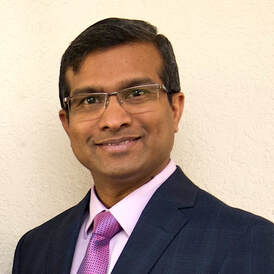
Jayagopal Parla, BAMS, MD-Ayu, MAOM, CMT, California, USA - is a world-renowned speaker. professor of Ayurvedic medicine and a NAMA registered practitioner. Jay has more than 23 years of experience in Ayurvedic practice and teaching. He is a professor of Ayurvedic medicine at American University of Complementary Medicine. Beverly Hills. California. He is also a visiting faculty member at Southern California University of Health Sciences, Whittier. California and Japan School of Ayurveda, Tokyo. Japan. His area of expertise includes pain management, chronic health conditions. healthy weight management. musculo-skeletal conditions, skin care, digestive imbalances, women’s health and anti-aging therapies. Jayagopal Parla (Jay) holds an Masters in Ayurvedic Medicine from Rajiv Gandhi University of Health Sciences. Bangalore. India. He also holds a Masters in Acupuncture and Oriental Medicine from Southern California University of Health Sciences and is a certified Yoga teacher.
Topic: Ayurvedic Herbs and Formulations for hepatobiliary disparities
Abstract:
Topic: Ayurvedic Herbs and Formulations for hepatobiliary disparities
Abstract:
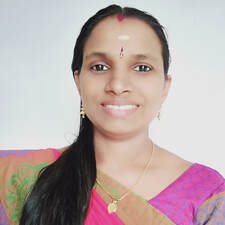
Dhanya Radhakrishnan, BAMS, Kerala, India - hailing from traditional Ayurveda and astrology Family, having more the 14 years of teaching and clinical experience. Currently working as a senior medical officer and director of Kerala Ayurveda Academy, Kochin, India. Completed My degree in Ayurvedic Medicine from Rajeev Gandhi University of Health Science, Karnataka. my present focus is treating patients and training students in the field of Ayurveda.
Topic: Importance of Panchakarma In liver care
Abstract: Importance of panchakarma in Liver care. what are the panchakarma procedures ( detoxification procedures as well as the other upa kramas) can be utilize in management of different liver complains & what are the herbs used for the same.
Topic: Importance of Panchakarma In liver care
Abstract: Importance of panchakarma in Liver care. what are the panchakarma procedures ( detoxification procedures as well as the other upa kramas) can be utilize in management of different liver complains & what are the herbs used for the same.
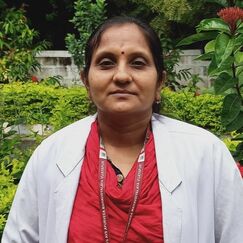
Seetha Birader, BAMS, MD-Ayu, Karnataka, India - working as Associate Professor & HOD IN BLDEA'S AVS Ayurveda Mahavidyalaya, Vijayapur, Karnataka completed my M.D. in Kaya Chikitsa, presently pursuing Ph.D from Parul University, Gujarat, India
Topic: Autoimmune hepatitis -an overview in Ayurveda
Abstract: Autoimmune hepatitis, formerly called lupoid hepatitis, is a chronic, autoimmune disease of the liver that occurs when the body's immune system attacks liver cells, causing the liver to be inflamed. Common initial symptoms include fatigue or muscle aches or signs of acute liver inflammation including fever, jaundice, and right upper quadrant abdominal pain. Individuals with autoimmune hepatitis often have no initial symptoms and the disease is detected by abnormal liver function tests Anomalous presentation of MHC class II receptors on the surface of liver cells, possibly due to genetic predisposition or acute liver infection, causes a cell-mediated immune response against the body's own liver, resulting in autoimmune hepatitis. This abnormal immune response results in inflammation of the liver, which can lead to further symptoms and complications such as fatigue and cirrhosis. The disease may occur in any ethnic group and at any age, but is most often diagnosed in patients between age 40 and 50
Topic: Autoimmune hepatitis -an overview in Ayurveda
Abstract: Autoimmune hepatitis, formerly called lupoid hepatitis, is a chronic, autoimmune disease of the liver that occurs when the body's immune system attacks liver cells, causing the liver to be inflamed. Common initial symptoms include fatigue or muscle aches or signs of acute liver inflammation including fever, jaundice, and right upper quadrant abdominal pain. Individuals with autoimmune hepatitis often have no initial symptoms and the disease is detected by abnormal liver function tests Anomalous presentation of MHC class II receptors on the surface of liver cells, possibly due to genetic predisposition or acute liver infection, causes a cell-mediated immune response against the body's own liver, resulting in autoimmune hepatitis. This abnormal immune response results in inflammation of the liver, which can lead to further symptoms and complications such as fatigue and cirrhosis. The disease may occur in any ethnic group and at any age, but is most often diagnosed in patients between age 40 and 50
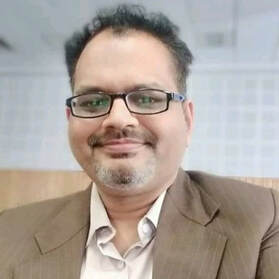
Kamlesh Mahajan, BAMS, MD-Ayu, Maharashtra, India - working as a Assistant professor in the Dept of Swasthavritta at Govt Aided Ayurveda college Ganeshwadi panchavati Nashik Maharashtra India, I have completed my BAMS from pune and MD in Swasthavritta from Amravati Maharashtra and also working as a Secretary of Ayurveda Vyaspeeth Nasik branch,I have total 14years of teaching experience
Topic: Non Alcoholic liver cirrhosis and ayurvedic management
Abstract: In today's modern era,hurry,worry curry and sedantary life styles,due to artificial life ,in all sense including dietatic and seasonal code and conduct,Liver is a main Mulsthana of Raktavahasrotas which is mentioned in our ancient science affected by Various types of drug medication in the form of habitual pain killers, self medication tendency and also due to various activities in the form of drinking water, sleep habits and routines, Ayurvedic nidan parivarjan siddhant panchabhoutik siddhant application and samanya vishesh siddhant can be apply to prevent the non alcoholic Liver cirrosis and also Rutuharitaki Rasayan and other Ayurvedic Diet practicing which is a need of hour according to the prakruti concept and also Herbomineral preparation is important to heal the liver
Topic: Non Alcoholic liver cirrhosis and ayurvedic management
Abstract: In today's modern era,hurry,worry curry and sedantary life styles,due to artificial life ,in all sense including dietatic and seasonal code and conduct,Liver is a main Mulsthana of Raktavahasrotas which is mentioned in our ancient science affected by Various types of drug medication in the form of habitual pain killers, self medication tendency and also due to various activities in the form of drinking water, sleep habits and routines, Ayurvedic nidan parivarjan siddhant panchabhoutik siddhant application and samanya vishesh siddhant can be apply to prevent the non alcoholic Liver cirrosis and also Rutuharitaki Rasayan and other Ayurvedic Diet practicing which is a need of hour according to the prakruti concept and also Herbomineral preparation is important to heal the liver

Eeswari Reddy, BAMS, South Africa - is an Ayurvedic doctor born and raised in Durban, South Africa. She has been practicing in South Africa for the past 15 years and served on the Professional Board for Ayurveda, Traditional Chinese Medicine and Unani – Tibb, which fall under the Umbrella of the Allied Health Professions Council of South Africa from 2008 to 2018. She has worked with non-government organizations (NGOs) and schools to educate the public and promote awareness about proper nutrition and the importance of treating disease immediately, thereby preventing the onset of illness and maintaining good health the Ayurvedic way. She strongly believes in the wisdom of the rishis who have gifted us this beautiful Science.
Some basic Information and Accolades about her are as follows:
1. She Matriculated from Durban Girls High, Durban.
2. She completed her Bachelor of Ayurvedic Medicine and Surgery degree from the Sri Jayendra Saraswati Ayurveda College, Chennai, India in 2005.
3. Whilst in her first year of studies in Chennai, Dr Reddy entered an All India Ayurvedic competition on Dietetics (Diet and Nutrition), where students from every Ayurvedic College in India participated and she won the first prize.
Topic: Ayurveda and Liver Care
Abstract: World Liver Day is celebrated on the 19th of April every year. The liver is the largest internal organ in the human body and is the second most complex organ of the body after the brain. Weighing in at a little over one kilogram, your liver is a complex chemical factory that works 24 hours a day. It processes virtually everything you eat, drink, breathe in or rub on your skin; in fact, the liver performs over 500 functions that are vital to life. Every day, your liver helps your body by providing it with energy, fighting off infections and toxins, helping clot the blood, regulating hormones and much, much more. Every day you make decisions that affect your liver health, as in the choices you make on household product purchases, food consumption and daily activity can have positive or negative effects on your liver.
Some basic Information and Accolades about her are as follows:
1. She Matriculated from Durban Girls High, Durban.
2. She completed her Bachelor of Ayurvedic Medicine and Surgery degree from the Sri Jayendra Saraswati Ayurveda College, Chennai, India in 2005.
3. Whilst in her first year of studies in Chennai, Dr Reddy entered an All India Ayurvedic competition on Dietetics (Diet and Nutrition), where students from every Ayurvedic College in India participated and she won the first prize.
Topic: Ayurveda and Liver Care
Abstract: World Liver Day is celebrated on the 19th of April every year. The liver is the largest internal organ in the human body and is the second most complex organ of the body after the brain. Weighing in at a little over one kilogram, your liver is a complex chemical factory that works 24 hours a day. It processes virtually everything you eat, drink, breathe in or rub on your skin; in fact, the liver performs over 500 functions that are vital to life. Every day, your liver helps your body by providing it with energy, fighting off infections and toxins, helping clot the blood, regulating hormones and much, much more. Every day you make decisions that affect your liver health, as in the choices you make on household product purchases, food consumption and daily activity can have positive or negative effects on your liver.
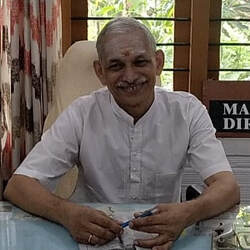
Sreekrishnan C.M., B.A.M., MD-Ayu, Kerala, India -Born on 6th June 1958 in an aristocratic traditional family in a rural area of Kerala. He is one among the few Ayurvedic physicians from Kerala practicing the Ashtangas of Ayurveda. he is traditionally specialized in balachikitsa (pediatrics) and vishachikitsa (Toxicology) and very expert in Ayurveda dermatology especially Balavisarpa. He is currently running own traditional Ayurvedic center Dhanwathari Ayurveda Bhavan. Several Doctors, house surgeons and students from different parts of India are undergoing traditional training in his center giving free treatments to poor patients on all Fridays as a charity service
Qualifications-.
• Passed BAM with first rank in 1981 from Ayurveda college kottakal,
• Took M.D (Ay) – I n Kayachikitsa, -with special subject Visha from postgraduate institute Trivandrum. In 1984
• He was appointed as a faculty of VPSV Ayurveda College Kottakkal in 1985. Worked as the Professor and H.O.D, V. P. S. V. Ayurveda College Kottakkal ..
• For concentrating fully in own traditional center, took Voluntary retirement from the service in April 2012 and developed his traditional centre as an international level.
• Now he is the chief physician and Managing director of Dhanwanthri Ayurveda Bhavan , Nelluvai, Trissur, Kerala
• He is the director of The Dhanwathari Institute of Dermatology (DID) where training class is organizing for young Doctors in Ayurvedic Dermatology
• Main interest teaching, clinical practice and, research in the field of Real Scientific effective and economic Ayurveda
• Conducted 100 episode of TV programme Arogya rangam in the local CCTV network .
• Conducted 365 episodes of TV programmes about Ayurveda drugs Thodiyela chedy in CCTV local channels
ACHIEVEMENTS
• Presented several scientific papers in various national and international seminars.
• Published several scientific articles in various journals.
• Published the book Avabhasini-A hand book on Ayurveda dermatology
• Published the English translation of Visha vaidya Jyotsika the Kerala traditional visha vaidya grandham.
• Conducted several scientific lecturers in various conferences.
• Has been the faculty for several ROTP organised under Ayush Department.
• Organised several training classes for Ayurveda doctors
• Rendered the service as faculty for panchkarmma training and orientation course organized by Araya Vaidya Sala Kotakkal and National institute of panchakarmma Cheruthuruthy.
• He delivered 2 hours Lecture about Ayurveda dermatology in the 6th International Ayurveda symposium for LOW countries at Belgium as a Guest Speaker in September 2017
• Delivered 2 hours lecture for the Ayurveda Yoga organization at Hiroshima, Japan about Atopic Dermatitis in march 2018
• Visited thajikisthan to promote Ayurveda treatment in October 2018
• Has been awarded the P. S .VARIER AWARD by Arya Vaidya Sala Kottakkal in 1983.
• Awarded the VAGBATAPURASKARAM by the Vagbhata Sarani, the Ayurveda wing of swadesi science movement in 1997.
• One among four Geveshakarethnanm award finalists in 2007 for the best PG thesis competition organized by KAPL
• Awarded the GANDHI SEVANA PURASKARAM by Mahatma Gandhi centre for education and research in 2008.
• Awarded The MediBiZ Ayur Bhushan Award from the MediBiz Ayur Excellency Awards.
• Awarded Vagdevatha Puraskkarnm from the vagdevatha magzine Pune.
• Awarded the Krishnashtami puraskaram by the panchajanyam balagokulam kothachira.palakkad
• Empanelled as a chikitsaka guru by Rashtreeya Ayurveda Vidya peeth under Ayush department, central Government.
Family-Wife Anitha (Teacher), children-Dr Sreenath M.D(Ay) , Sreehari .BAMS student.
His Moto - Life is beautiful when it is simple, Ayurveda is a life style - Which is simple and beautiful.
Topic: Managing liver problems by traditional Ayurveda medicines
Abstract: The liver is precisely called the engine of the body. It plays a pivotal role in the manufacture, storage and regulation of essential compounds. We can survive only one or two days if it shuts down. If the liver fails, our body will fail too. Fortunately the liver can function even when up to 75% of it is diseased or removed. This is because it has amazing ability to create new liver tissues. that is it can regenerate itself, from healthy liver cells that still exist. Currently there is no artificial organ or device capable of emulating all the functions of the liver. it does hundreds of vital things to make sure everything runs smoothly. The liver is among the most complex and important organs in the human body. Every second the liver cells go through thousands of complex biochemical interactions that influence all the other organs in the body. Its complexity that makes the liver more to become problematic, when we are neglecting its importance to prevent and cure its problem at the early stage itself. There are more than 500 functions are doing by the liver daily to protect our body. Of among them detoxification and metabolism is the important functions. The liver supports every organ in the body and is vital for survival. Because of its strategic location and multidimensional functions, the liver is also prone to many diseases. The term liver diseases can apply to many disorders that cause the liver to function improperly or cease functioning. When the liver is unable to meet with over function, due to over expose of more and more toxins both internal and external that cause liver damage. That precipitates as general weakness to chronic liver diseases. Nowadays due to change of life style especially the food alcohol over medication infection etc the liver problems are increasing. Our traditional Healthcare especially healthy food is to protect the liver from over toxicity. So that their function may be maintained. but due to the new lifestyles our body is especially the liver is subjected to do overwork in detoxification and metabolism. When is beyond its control the liver will become damage. By some simple drugs and healthy food habits we can protect the liver, improve liver function and manage liver problems very easily. Ayurveda describe the function of liver and its problems clearly in (Yakruth roga). The treatment methods in modalities are described in Ayurveda for preventive as well as curative of liver problem. Here I am discussing my traditional Ayurveda management of liver problems with its clinical evidence, especially the fatty liver and hepatomegaly. One among them is the usage is turmeric powder (haridra) and also the effect of panchakola thakram. it a a traditional preparation using a compound drug panchakolam (5 herbs boiled in butter milk ) . Advising along with the herbs some restrictions in the food, (where is normal good food and plenty of water) and make the mind calm and quiet to stimulate the metabolism. Also sufficient sleep to normalise the homeostasis mechanism of the body .An evaluation of SGPT SGOT and USG scan is also doing for a evidence based clinical trial.
Qualifications-.
• Passed BAM with first rank in 1981 from Ayurveda college kottakal,
• Took M.D (Ay) – I n Kayachikitsa, -with special subject Visha from postgraduate institute Trivandrum. In 1984
• He was appointed as a faculty of VPSV Ayurveda College Kottakkal in 1985. Worked as the Professor and H.O.D, V. P. S. V. Ayurveda College Kottakkal ..
• For concentrating fully in own traditional center, took Voluntary retirement from the service in April 2012 and developed his traditional centre as an international level.
• Now he is the chief physician and Managing director of Dhanwanthri Ayurveda Bhavan , Nelluvai, Trissur, Kerala
• He is the director of The Dhanwathari Institute of Dermatology (DID) where training class is organizing for young Doctors in Ayurvedic Dermatology
• Main interest teaching, clinical practice and, research in the field of Real Scientific effective and economic Ayurveda
• Conducted 100 episode of TV programme Arogya rangam in the local CCTV network .
• Conducted 365 episodes of TV programmes about Ayurveda drugs Thodiyela chedy in CCTV local channels
ACHIEVEMENTS
• Presented several scientific papers in various national and international seminars.
• Published several scientific articles in various journals.
• Published the book Avabhasini-A hand book on Ayurveda dermatology
• Published the English translation of Visha vaidya Jyotsika the Kerala traditional visha vaidya grandham.
• Conducted several scientific lecturers in various conferences.
• Has been the faculty for several ROTP organised under Ayush Department.
• Organised several training classes for Ayurveda doctors
• Rendered the service as faculty for panchkarmma training and orientation course organized by Araya Vaidya Sala Kotakkal and National institute of panchakarmma Cheruthuruthy.
• He delivered 2 hours Lecture about Ayurveda dermatology in the 6th International Ayurveda symposium for LOW countries at Belgium as a Guest Speaker in September 2017
• Delivered 2 hours lecture for the Ayurveda Yoga organization at Hiroshima, Japan about Atopic Dermatitis in march 2018
• Visited thajikisthan to promote Ayurveda treatment in October 2018
• Has been awarded the P. S .VARIER AWARD by Arya Vaidya Sala Kottakkal in 1983.
• Awarded the VAGBATAPURASKARAM by the Vagbhata Sarani, the Ayurveda wing of swadesi science movement in 1997.
• One among four Geveshakarethnanm award finalists in 2007 for the best PG thesis competition organized by KAPL
• Awarded the GANDHI SEVANA PURASKARAM by Mahatma Gandhi centre for education and research in 2008.
• Awarded The MediBiZ Ayur Bhushan Award from the MediBiz Ayur Excellency Awards.
• Awarded Vagdevatha Puraskkarnm from the vagdevatha magzine Pune.
• Awarded the Krishnashtami puraskaram by the panchajanyam balagokulam kothachira.palakkad
• Empanelled as a chikitsaka guru by Rashtreeya Ayurveda Vidya peeth under Ayush department, central Government.
Family-Wife Anitha (Teacher), children-Dr Sreenath M.D(Ay) , Sreehari .BAMS student.
His Moto - Life is beautiful when it is simple, Ayurveda is a life style - Which is simple and beautiful.
Topic: Managing liver problems by traditional Ayurveda medicines
Abstract: The liver is precisely called the engine of the body. It plays a pivotal role in the manufacture, storage and regulation of essential compounds. We can survive only one or two days if it shuts down. If the liver fails, our body will fail too. Fortunately the liver can function even when up to 75% of it is diseased or removed. This is because it has amazing ability to create new liver tissues. that is it can regenerate itself, from healthy liver cells that still exist. Currently there is no artificial organ or device capable of emulating all the functions of the liver. it does hundreds of vital things to make sure everything runs smoothly. The liver is among the most complex and important organs in the human body. Every second the liver cells go through thousands of complex biochemical interactions that influence all the other organs in the body. Its complexity that makes the liver more to become problematic, when we are neglecting its importance to prevent and cure its problem at the early stage itself. There are more than 500 functions are doing by the liver daily to protect our body. Of among them detoxification and metabolism is the important functions. The liver supports every organ in the body and is vital for survival. Because of its strategic location and multidimensional functions, the liver is also prone to many diseases. The term liver diseases can apply to many disorders that cause the liver to function improperly or cease functioning. When the liver is unable to meet with over function, due to over expose of more and more toxins both internal and external that cause liver damage. That precipitates as general weakness to chronic liver diseases. Nowadays due to change of life style especially the food alcohol over medication infection etc the liver problems are increasing. Our traditional Healthcare especially healthy food is to protect the liver from over toxicity. So that their function may be maintained. but due to the new lifestyles our body is especially the liver is subjected to do overwork in detoxification and metabolism. When is beyond its control the liver will become damage. By some simple drugs and healthy food habits we can protect the liver, improve liver function and manage liver problems very easily. Ayurveda describe the function of liver and its problems clearly in (Yakruth roga). The treatment methods in modalities are described in Ayurveda for preventive as well as curative of liver problem. Here I am discussing my traditional Ayurveda management of liver problems with its clinical evidence, especially the fatty liver and hepatomegaly. One among them is the usage is turmeric powder (haridra) and also the effect of panchakola thakram. it a a traditional preparation using a compound drug panchakolam (5 herbs boiled in butter milk ) . Advising along with the herbs some restrictions in the food, (where is normal good food and plenty of water) and make the mind calm and quiet to stimulate the metabolism. Also sufficient sleep to normalise the homeostasis mechanism of the body .An evaluation of SGPT SGOT and USG scan is also doing for a evidence based clinical trial.

Anjali Verma, BAMS, MS-Ayu, Uttarakhand, India - is a leading practitioner, acadamecian and researcher in OBGYN field of Ayurveda. She has various publications in international and national scientific journals. She also wrote a international book on female infertility. She has been an invited speaker at national level conferences on multiple occasions. She has had a brilliant academic record and is also the recipient of numerous awards. She teaches obstetrics and Gynecology in Rishikul Government P.G Ayurvedic Medical College & Hospital, Haridwar. She completed her graduation from Jhanshi State Ayurvedic College and Post Graduation degree in Stri and prasuti from Institute of post graduation teaching and research institute, Jamnagar, Gujarat Ayurveda University. She pursues clinical research in infertility and got success in number of infertile women cases by treating them with Ayurveda. She has also made several original scientific contributions such as female infertility due implantation failure, Cervical erosion, Uttara Basti, PCOD, Amenorrhea management by Ayurveda. She has great enthusiasm to serve society with Ayurveda practice and earn great success in Obstetrics and Gynecology field.
Topic: Ayurveda Perspective and Management of Intrahepatic cholestasis during Pregnancy
Abstract: Intrahepatic cholestasis of pregnancy (ICP) is a commonest pregnancy-specific liver disorder characterized by pruritus in the third trimester, elevated serum bile acids and associated with increased risk of adverse fetal outcomes. In Ayurveda, ICP has a close manifestation with Garbha Peedan Janya Vyadhi, Pitta vitiation characterized by Kandu i.e. pruritus in 7th month of pregnancy. Pitta vitiation due to Garbha Peedan can be consider as cholestasis due to increasing amount of estrogen, progesterone in third trimester and mechanical pressure exerts by growing fetus on biliary drainage. Liver is consider as seat of Pitta, thus liver preparations with Pitta Shamaka and Pitta virechak properties potently break the etio-pathogenesis of ICP by channelize the flow of bile. Clinical Evidences in support of above analysis are also proved that liver preparation played a significant role in management of ICP.
Topic: Ayurveda Perspective and Management of Intrahepatic cholestasis during Pregnancy
Abstract: Intrahepatic cholestasis of pregnancy (ICP) is a commonest pregnancy-specific liver disorder characterized by pruritus in the third trimester, elevated serum bile acids and associated with increased risk of adverse fetal outcomes. In Ayurveda, ICP has a close manifestation with Garbha Peedan Janya Vyadhi, Pitta vitiation characterized by Kandu i.e. pruritus in 7th month of pregnancy. Pitta vitiation due to Garbha Peedan can be consider as cholestasis due to increasing amount of estrogen, progesterone in third trimester and mechanical pressure exerts by growing fetus on biliary drainage. Liver is consider as seat of Pitta, thus liver preparations with Pitta Shamaka and Pitta virechak properties potently break the etio-pathogenesis of ICP by channelize the flow of bile. Clinical Evidences in support of above analysis are also proved that liver preparation played a significant role in management of ICP.
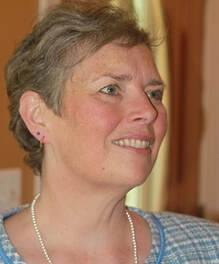
Mary Sullivan, MS, AHC, Massachusetts, USA - worked in the chemical industry as a chemist, engineer, manager, and director for 20 years. After leaving the chemical industry, she became a yoga teacher RYT 500, an Ayurvedic Health Counselor, and continues study in Ayurveda, Reiki, karma healing, and yoga therapy. Mary sees clients in Clinton at Wachusett Wellness and teaches Ayurveda classes locally and online. Mary educates and writes on tick bite prevention, Lyme recovery strategies, and Ayurveda for many organizations, including, Dare to Self Care, Ayurselfcare.com, The Mighty, Yogahealer, and Yoga Health Coaching. She believes in building and sharing routines that maintain self-care as a cornerstone of a healthy, vibrant life.
Topic: Ahara & Vihara For Non-Alcoholic Fatty Liver
Abstract: Non Alcoholic Fatty Liver disease is on the rise, coincident with increasing global obesity, insulin resistance, and diabetes rates. Food and Lifestyle choices are the first line of defense to slow fat accumulation in the liver. Targeted supplements will also support the release of toxins and fat for a healthy liver. The human liver has a fantastic ability to regenerate; it can heal itself with a bit of help. This talk will focus on foods to support liver detoxification and health, techniques to release emotional toxins from the liver, and supplements currently under study that show promise in liver repair.
Topic: Ahara & Vihara For Non-Alcoholic Fatty Liver
Abstract: Non Alcoholic Fatty Liver disease is on the rise, coincident with increasing global obesity, insulin resistance, and diabetes rates. Food and Lifestyle choices are the first line of defense to slow fat accumulation in the liver. Targeted supplements will also support the release of toxins and fat for a healthy liver. The human liver has a fantastic ability to regenerate; it can heal itself with a bit of help. This talk will focus on foods to support liver detoxification and health, techniques to release emotional toxins from the liver, and supplements currently under study that show promise in liver repair.
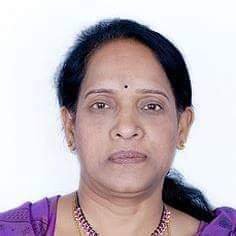
Shantala Priyadarshini, BAMS, MD-Ayu, Karnataka, India - worked as a joint Director AYUSH training center. Sugganahalli, Ramanagar. Retd professor Government Ayurveda medical college. Mysore Post graduation in Ayurveda (Shalakya) from Rajiv Gandhi University of Health Sciences , and post graduation in Sanskrit and Environmental Science &Technology. Invited by Australia India Council (AIC) on Indo Australian research grant as an Ayurveda researcher on scientist exchange program to University of Southern Australia, Adelaide and as Ayurveda expert to Yoga Thailand to teach Ayurveda course, invited to Maharishimahesh Yogi University of Vedic Sciences, Netherlands as Ayurveda consultant and faculty. Invited speaker for national, international and regional programs for scientific community and for public. Invited and associated with director of Hawke Research Institute for Sustainable Societies and Program Director, School of Communication Adelaide ,University of South Australia .Invited as speaker for Indo Sri Lanka Rasasambhasa 2019 at Colombo. Invited oration awards include Dr. Vasundara lady Scientist memorial oration talk at DFRL, Mysore, Dr. Jayade oration lecture series for 10 talks invited by Dr.Jayade trust, and Dr. Madhusudan Jhamwar oration talk on community ophthalmology, Pune. Member CCIM nominated by Government of India, honorary member awarded by British Association of Accredited Ayurvedic Practitioners (BAAAP) National board member of Arogya Bharati, Former President of TAS (The Association of Shalaki, India). Known public speaker, writes articles for public to create health and hygiene, keen about teaching &research. Research grants received by Indo US DBT mini research grant, Rajiv Gandhi University Health Sciences research grant and also from National AYUSH mission. Akila Bharteeya adhikari of Arogya Bharati –works related to Health policy drafting, swasthgram yojana ,kutumbha prabhodhan involving rural care of women of all ages.
Topic: Hepatitis B - Ayurveda Management - Global Solution
Abstract: Most morbid conditions majorly depend on Ayurveda management of liver conditions has been highly appreciated, accepted as the best solution since ages .Liver, being the most essential organ, has huge significance in patho physiology and Ayurveda designates liver and sleep as moola of raktavaha srotas. status of liver and spleen as circulation and excretion occurs though these organs. WHO states that more than 27 million people are living with chronic hepatitis B infection and in 2015. 88,7000 deaths mostly from cirrhosis and hepato cellular carcinoma has been recorded and this depicts the gravity . Ayurveda states that pachankgni and pitta very much related to yakrutha, the liver has wholistic management. The presentation shall give data of successful management with evidence worth implementing in multicenter and shall be of immense benefits.
Topic: Hepatitis B - Ayurveda Management - Global Solution
Abstract: Most morbid conditions majorly depend on Ayurveda management of liver conditions has been highly appreciated, accepted as the best solution since ages .Liver, being the most essential organ, has huge significance in patho physiology and Ayurveda designates liver and sleep as moola of raktavaha srotas. status of liver and spleen as circulation and excretion occurs though these organs. WHO states that more than 27 million people are living with chronic hepatitis B infection and in 2015. 88,7000 deaths mostly from cirrhosis and hepato cellular carcinoma has been recorded and this depicts the gravity . Ayurveda states that pachankgni and pitta very much related to yakrutha, the liver has wholistic management. The presentation shall give data of successful management with evidence worth implementing in multicenter and shall be of immense benefits.
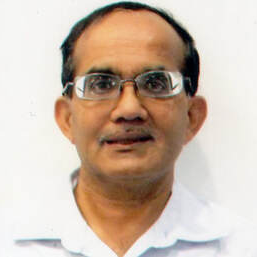
Nagabhushan Moolky, PhD, CNS, Illinois, USA - Senior Scientist, Senior Independent Consultant -Nutrition & Toxicology, Expert Witness, a certified nutrition specialist, USA, Health Coach, Yoga Expert, Ayurveda & Yoga researcher. He worked as a scientist for the last 35 years. He was a Scientific Officer at Tata Memorial Center Cancer Institute, Bombay, India where he completed his Ph.D. He worked as a scientist in several top-notch Universities (Research Scientist at Northwestern University, the University of Illinois at Chicago, Case Western Reserve University, the University of Kentucky & Loyola University of Chicago) in the USA. He was also an Assistant Professor (Research) at Northwestern University & University of Illinois at Chicago, Chicago, Illinois, USA. Director/Research Scientist, Toxicology/Genetic Toxicology, Illinois Institute of Technology (IIT) Research Institute, Chicago, Illinois, USA. He was the first one to show(1984) that some of the spices (its principles) - Turmeric (Curcumin), Ginger (Gingerol, Shaogol , and zingerone), Catechu (Catechin), and betel leaf (Hydroxychavicol) prevents genetic damage resulting in cancer formation caused by environmental and dietary chemicals. He is the first one to show (1987) that Turmeric in the diet prevents carcinogen-induced stomach tumors in mice and virus-induced spontaneous mammary tumors in mice. His research was recognized by more than 20 awards by the national and international organization including the Young Scientist Award (Gold Medal), 1988 from Indian Council for Medical Research (ICMR), New Delhi, India, and New Investigator Award 1989, American College of Nutrition, USA. He has published (more than 50 publications) his research findings in peer-reviewed national and international scientific journals and also presented more than 150 abstracts in national and international scientific meetings. In 2004, he was invited to present his work at the First International Conference on childhood leukemia, London. The research report was covered by all major newspapers and news channels around the world including BBC, CNBC, CBS, ABC news. The report was published in Lancet, New Scientist. He has given 7 talks on Ayurveda & Science at international conferences. Also, 6 webinars about the usefulness of turmeric during the present COVID19 Pandemic.
Topic: Turmeric/Curcumins for the healthy liver and prevention of liver diseases
Prof. Nagabhushan Moolky, Ph.D., C.N.S., Senior Scientist, Independent Consultant - Nutrition & Toxicology, Yoga Expert, Health Coach, Expert Witness, Ayurveda & Yoga Researcher, Oak Brook, Illinois, USA.
Saanvi Sethi, Hinsdale Central High School, Hinsdale, Illinois, USA
Abstract: The liver is an important organ like the heart, lungs, and kidneys. Ayurveda gives prime importance to the liver because it is actively involved in vital functions, digestion, and nourishment of other organs. Turmeric has been used for over 10,000 years (Saraswati Civilization) in India. Turmeric is a mild digestive, aromatic, stimulant, and carminative. Turmeric decreases Kapha, balances tridosha, and is used to remove mucus in the throat, watery discharges like leucorrhea, and any pus in the eyes, ears, or wounds
and used for wound healing. Turmeric has been used for conditions such as liver obstruction and jaundice. Roasted turmeric has been used as an ingredient in a preparation used for dysentery. Boiled dried rhizome water decoctions have been taken orally in Ayurvedic medicine to reduce inflammation. Turmeric is also regarded as a Rasayana. Turmeric is an important major spice used around the world as a common medicine and in food preparation. The yellow coloring active compound in turmeric is curcumins (2-5%), which have antioxidant and anti-inflammatory activities. 1n 1984, Dr. Nagabhushan Moolky for the first time showed that turmeric (Curcumins) has antigenotoxic and cancer-preventing properties. Curcumins inhibit multi-stages of cancer formation, Initiation (DNA damage/mutation) promotion (enhancing the DNA damage), progression (cancer formation), and transformation (malignant tumors). In 1987, Dr. Nagabhushan has shown that ingestion of 1g/turmeric decreases urinary excretion of mutagens in cigarette and bidi smokers. These findings are also important in unhealthy liver-induced skin diseases, liver cancer, and drug metabolism. Earlier, shown that turmeric and curcumins inhibit aflatoxin B-induced mutagenicity/carcinogenicity, a natural food contaminant, that causes liver injury and cancer. Several preclinical and clinical scientific studies have shown the beneficial effects of turmeric/curcumins in liver health and diseases. It prevents oxidative damage, liver injury by xenobiotics, chemotherapeutic drugs, excessive alcohol consumption-induced liver injury, fatty liver, nonalcoholic fatty liver, hepatitis virus A, C - induced damage, cirrhosis & fibrosis, antivirus, and aflatoxin-indued liver cancer. COVID19 infection results in multiorgan failure, including hepatic damage. Hyper coagulation of blood, change in glucose metabolism, and liver fibrosis. Turmeric/curcumins are hepatoprotective, prevent hepatic damage, anti-thrombotic (Reduces clotting of blood), hypoglycemic, and prevents liver fibrosis. Recent clinical trials show that aspirin (75-100mg/day) reduces clotting and reduces death in COVID19 patients. Long-term use of aspirin causes ulcers and bleeding, whereas curcumins are safer to use. Dr. Nagabhushan for the first time (1997) has shown that curcumin improved ex-vivo hypothermic preservation of the liver, which may be useful for human tissue/solid organ transplantation. Because of immunosuppression, in liver transplant patients, Epstein-Barr virus (EBV) becomes active and induces uncontrolled proliferation of B- cells. This leads to the development of non-Hodgkin lymphoma, which is detrimental to transplanted organs and patients. Curcumin inhibits EBV-induced, cyclosporine-A (CylA) promoted human B-cell proliferation and malignant transformation. Curcumin also inhibits CylA resistant activation of T lymphocyte activation and proliferation of human lymphocytes. Another important aspect of Curcumin is it reduces graft vs host disease.
Topic: Turmeric/Curcumins for the healthy liver and prevention of liver diseases
Prof. Nagabhushan Moolky, Ph.D., C.N.S., Senior Scientist, Independent Consultant - Nutrition & Toxicology, Yoga Expert, Health Coach, Expert Witness, Ayurveda & Yoga Researcher, Oak Brook, Illinois, USA.
Saanvi Sethi, Hinsdale Central High School, Hinsdale, Illinois, USA
Abstract: The liver is an important organ like the heart, lungs, and kidneys. Ayurveda gives prime importance to the liver because it is actively involved in vital functions, digestion, and nourishment of other organs. Turmeric has been used for over 10,000 years (Saraswati Civilization) in India. Turmeric is a mild digestive, aromatic, stimulant, and carminative. Turmeric decreases Kapha, balances tridosha, and is used to remove mucus in the throat, watery discharges like leucorrhea, and any pus in the eyes, ears, or wounds
and used for wound healing. Turmeric has been used for conditions such as liver obstruction and jaundice. Roasted turmeric has been used as an ingredient in a preparation used for dysentery. Boiled dried rhizome water decoctions have been taken orally in Ayurvedic medicine to reduce inflammation. Turmeric is also regarded as a Rasayana. Turmeric is an important major spice used around the world as a common medicine and in food preparation. The yellow coloring active compound in turmeric is curcumins (2-5%), which have antioxidant and anti-inflammatory activities. 1n 1984, Dr. Nagabhushan Moolky for the first time showed that turmeric (Curcumins) has antigenotoxic and cancer-preventing properties. Curcumins inhibit multi-stages of cancer formation, Initiation (DNA damage/mutation) promotion (enhancing the DNA damage), progression (cancer formation), and transformation (malignant tumors). In 1987, Dr. Nagabhushan has shown that ingestion of 1g/turmeric decreases urinary excretion of mutagens in cigarette and bidi smokers. These findings are also important in unhealthy liver-induced skin diseases, liver cancer, and drug metabolism. Earlier, shown that turmeric and curcumins inhibit aflatoxin B-induced mutagenicity/carcinogenicity, a natural food contaminant, that causes liver injury and cancer. Several preclinical and clinical scientific studies have shown the beneficial effects of turmeric/curcumins in liver health and diseases. It prevents oxidative damage, liver injury by xenobiotics, chemotherapeutic drugs, excessive alcohol consumption-induced liver injury, fatty liver, nonalcoholic fatty liver, hepatitis virus A, C - induced damage, cirrhosis & fibrosis, antivirus, and aflatoxin-indued liver cancer. COVID19 infection results in multiorgan failure, including hepatic damage. Hyper coagulation of blood, change in glucose metabolism, and liver fibrosis. Turmeric/curcumins are hepatoprotective, prevent hepatic damage, anti-thrombotic (Reduces clotting of blood), hypoglycemic, and prevents liver fibrosis. Recent clinical trials show that aspirin (75-100mg/day) reduces clotting and reduces death in COVID19 patients. Long-term use of aspirin causes ulcers and bleeding, whereas curcumins are safer to use. Dr. Nagabhushan for the first time (1997) has shown that curcumin improved ex-vivo hypothermic preservation of the liver, which may be useful for human tissue/solid organ transplantation. Because of immunosuppression, in liver transplant patients, Epstein-Barr virus (EBV) becomes active and induces uncontrolled proliferation of B- cells. This leads to the development of non-Hodgkin lymphoma, which is detrimental to transplanted organs and patients. Curcumin inhibits EBV-induced, cyclosporine-A (CylA) promoted human B-cell proliferation and malignant transformation. Curcumin also inhibits CylA resistant activation of T lymphocyte activation and proliferation of human lymphocytes. Another important aspect of Curcumin is it reduces graft vs host disease.
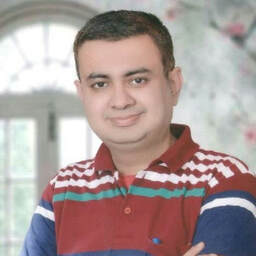
Bhargav Mehta, BAMS, MD-Ayu, Gujarat, India - Working at Kaumarabhritya (Pediatrics) as a assistant professor & deputy medical superintendent at RK University Ayurveda college and hospital having clinical experience of more than 10 yrs and academic experience of 3 yrs. I am passionate about my work and like to take new challenges and do innovations. I am Gujarat director in AAPNA, vice president in ATA, national convener in KAAP
Topic: Ayurveda remedies for fatty liver
Abstract: Liver is a important gland of digestive system. Liver Diseases in todays time are caused by faulty diet and lifestyle. Major manifestations include viral hepatitis, cirrhosis, ascites, fatty liver etc. common symptoms include discoloration of eyes, urine, fatigue, vomiting. Ayurveda treatment have been found quite useful in that like shodhan or shamana therapy.Some of the herbs like vasa, nimba, shark, Kumar etc are very useful along with pathya sevana
Topic: Ayurveda remedies for fatty liver
Abstract: Liver is a important gland of digestive system. Liver Diseases in todays time are caused by faulty diet and lifestyle. Major manifestations include viral hepatitis, cirrhosis, ascites, fatty liver etc. common symptoms include discoloration of eyes, urine, fatigue, vomiting. Ayurveda treatment have been found quite useful in that like shodhan or shamana therapy.Some of the herbs like vasa, nimba, shark, Kumar etc are very useful along with pathya sevana
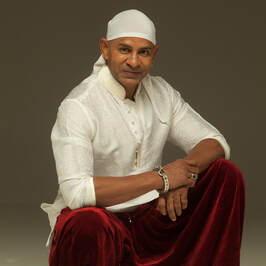
Master Kamal Srinivas, PhD, Bangkok, Thailand - He is known as one of the 8 greatest Indian Yoga Masters in the World & holds Guinness World Record in Yoga scale pose
• Ph.D. in Naturopathy and Yoga Management
• Doctor in Alternative Medicines – Nov 2014
• Ayurveda Wellness Counselor. Kerala Ayurveda, U.S.A, 2014
• Certified Ayurveda Practitioner, (CAP, NAMA -National Ayurvedic Medical Association), U.S.A June 2014
• Diploma in Yogic Sciences
• 200/500 hour Yoga Alliance USA Registered Teacher
• Certified Fitness Coach, Singapore
• Certified Fitness Instructor, FISAF, Singapore
• CPD Accredited Certification
• Certified Nutrition Coach, Level 1
• ADVISOR Committee - Association of Ayurvedic Professional of North America (AAPNA), USA
• CEO, KAYAMANA Wellness, Thailand
• Guinness World Record Holder for holding the longest Scale Yoga pose May 2018
Awards:
Topic: Yoga for Liver Detox
Abstract: The liver’s job is to detox but if it becomes overloaded with toxins due to unhealthy eating, excess alcohol, prescription drugs, excess carbohydrates, and excess fructose could cause chronic damage to the liver, called liver toxicity. These toxins in the bloodstream can travel to the brain and temporarily (or sometimes permanently) affect brain function. Twisting yoga poses offer many benefits, including detoxing our bodies. With proper alignment, twist variations can also reduce back pain and improve digestion. Master Kamal shares his experiential knowledge in treating fatty liver and detoxification of liver with specific yoga postures, breathing, and liver detox mocktail techniques to drastically remove toxins from the liver, improve liver health, and which in turn will help remove toxins from your entire body.
• Ph.D. in Naturopathy and Yoga Management
• Doctor in Alternative Medicines – Nov 2014
• Ayurveda Wellness Counselor. Kerala Ayurveda, U.S.A, 2014
• Certified Ayurveda Practitioner, (CAP, NAMA -National Ayurvedic Medical Association), U.S.A June 2014
• Diploma in Yogic Sciences
• 200/500 hour Yoga Alliance USA Registered Teacher
• Certified Fitness Coach, Singapore
• Certified Fitness Instructor, FISAF, Singapore
• CPD Accredited Certification
• Certified Nutrition Coach, Level 1
• ADVISOR Committee - Association of Ayurvedic Professional of North America (AAPNA), USA
• CEO, KAYAMANA Wellness, Thailand
• Guinness World Record Holder for holding the longest Scale Yoga pose May 2018
Awards:
- Yoga Brahma Award 2015 at 15th International Ayurveda conference U.S.A
- Yoga Ratna Award- 8TH Asian Yoga Sports Championship, India 2018
- Gold Medalist in Yoga -2014 Malaysia
- Entered Limca Book of Indian Records for breaking 6 granite (cuddapah) stones with one stroke of his hand - 1994
- Gem Of Alternative Medicine- 2014
- Patanjali Memorial Award – Dec 2014
- Yoga Shoromani, Sivananda Yoga – Dec 2001
- Global Yoga Life Time Achievement Award-2018
- International Yoga Achievers Award-2020
- Author of 4 Books in Yoga and Ayurveda
- Performed 60 hrs. of Yoga Episodes on TV ‘Yoga for Everyday life’ Vietnam
Topic: Yoga for Liver Detox
Abstract: The liver’s job is to detox but if it becomes overloaded with toxins due to unhealthy eating, excess alcohol, prescription drugs, excess carbohydrates, and excess fructose could cause chronic damage to the liver, called liver toxicity. These toxins in the bloodstream can travel to the brain and temporarily (or sometimes permanently) affect brain function. Twisting yoga poses offer many benefits, including detoxing our bodies. With proper alignment, twist variations can also reduce back pain and improve digestion. Master Kamal shares his experiential knowledge in treating fatty liver and detoxification of liver with specific yoga postures, breathing, and liver detox mocktail techniques to drastically remove toxins from the liver, improve liver health, and which in turn will help remove toxins from your entire body.
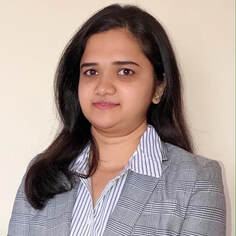
Swarda Uppin, BAMS, MD-Ayu, Karnataka, India - presently working as an Assistant Professor in the Department of Kayachikitsa (Internal Medicine) and Consultant in specialized area of Rasayana Evam Vajikarana (Rejuvenation & Aphrodisiac), at KAHER’s Shri BMK Ayurveda Mahavidyalaya, Belagavi, Karnataka, India. A graduate from Rajiv Gandhi University of Health Science, Bangalore (2015) and pursued masters from KLE Academy of Higher Education and Research, Belagavi (2019). Been a speaker at various scientific platforms for promoting Ayurveda lines of Rejuvenation and Fertility, and has a few publications to her credit.
Topic: Rasayana: Revitalizing the Liver
Abstract: Liver is the primary organ of detoxification, and plays a vital role in protecting the deeper tissues thereby maintaining health. Owing to its strategic location and multidimensional functions, the liver is prone to various diseases. Its exposure to exogeneous and endogenous toxins further account to cause the damage. The liver may function even when 75% of it is diseased or removed and this is due to its remarkable ability to heal and rejuvenate itself. For the liver to efficiently repair and enhance its functional capacity, it would require periodic supplementation. Ayurveda beautifully explains the concept of Rasayana, which checks various aspects of health, particularly: foiling the damage owing to its antioxidant and adaptogenic effect, and preventing the recurrence of the damage through cell proliferation and regeneration. This source shall emphasize on the Medicinal and lifestyle aspects of Rasayana Chikitsa, with respect to Liver and its health benefits.
Topic: Rasayana: Revitalizing the Liver
Abstract: Liver is the primary organ of detoxification, and plays a vital role in protecting the deeper tissues thereby maintaining health. Owing to its strategic location and multidimensional functions, the liver is prone to various diseases. Its exposure to exogeneous and endogenous toxins further account to cause the damage. The liver may function even when 75% of it is diseased or removed and this is due to its remarkable ability to heal and rejuvenate itself. For the liver to efficiently repair and enhance its functional capacity, it would require periodic supplementation. Ayurveda beautifully explains the concept of Rasayana, which checks various aspects of health, particularly: foiling the damage owing to its antioxidant and adaptogenic effect, and preventing the recurrence of the damage through cell proliferation and regeneration. This source shall emphasize on the Medicinal and lifestyle aspects of Rasayana Chikitsa, with respect to Liver and its health benefits.

Drashti Parikh, BAMS, MD-Ayu, PGDYN, New Jersey, USA - is an Ayurvedic doctor. She has completed her BAMS with the Gold Medal as well as completed the Master's Degree in Kayachikitsa from IPGT & RA. She holds a post graduation diploma in Yoga & Naturopathy. Drashti has authored the book ‘Manual of Kayachikitsa’ (part-1), and is also an author of various articles & researches on Ayurveda. Throughout her academic career, she had the honor to participate in various national & international conferences where she has received multiple awards on the subject of Ayurveda. She couldn't be more passionate about the great field of Ayurveda.
Topic: Role of Ayurveda in Non Alcoholic Fatty Liver Disease
Abstract: Non alcoholic fatty liver disease is a spectrum of diseases. It occurs as a result of accumulation of extra fat in the liver. Liver is a vital organ of the body and causes such as unhealthy and untimely diet, sedentary lifestyle, stress, etc. hampers the normal functions of the liver. As a result of these causes, non alcoholic fatty liver disease occurs in the human body. This disease can be prevented by early diagnosis, lifestyle modification, improving metabolism and proper treatment. Ayurveda plays a key role in the prevention and management of this disease by different modalities. We will discuss this in detail in our upcoming conference.
Topic: Role of Ayurveda in Non Alcoholic Fatty Liver Disease
Abstract: Non alcoholic fatty liver disease is a spectrum of diseases. It occurs as a result of accumulation of extra fat in the liver. Liver is a vital organ of the body and causes such as unhealthy and untimely diet, sedentary lifestyle, stress, etc. hampers the normal functions of the liver. As a result of these causes, non alcoholic fatty liver disease occurs in the human body. This disease can be prevented by early diagnosis, lifestyle modification, improving metabolism and proper treatment. Ayurveda plays a key role in the prevention and management of this disease by different modalities. We will discuss this in detail in our upcoming conference.
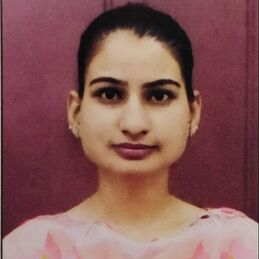
Sakshi, BAMS, Punjab, India - completed BAMS from Dayanand Ayurvedic College, Jalandhar, Punjab and pursuing MD (Panchakarma) in same college.
Topic: Liver detoxification through Panchakarma
Abstract: As a culture, we seem to be increasingly liver-conscious—ever more aware of the importance of a healthy liver. This attention is well deserved. Without question, the liver is one of our most vital organs. Endlessly filtering and detoxifying the blood, the liver plays a significant role in digestion and metabolism. It also synthesizes protein, produces critical enzymes and hormones, breaks down and recycles tired blood cells, and regulates glycogen storage. Ayurveda describes the liver as a fiery, hot organ. Qualitatively speaking, this fact alone signals a close relationship between the liver, agni (the fire principle), pitta dosha, and the energy of transformation.
Topic: Liver detoxification through Panchakarma
Abstract: As a culture, we seem to be increasingly liver-conscious—ever more aware of the importance of a healthy liver. This attention is well deserved. Without question, the liver is one of our most vital organs. Endlessly filtering and detoxifying the blood, the liver plays a significant role in digestion and metabolism. It also synthesizes protein, produces critical enzymes and hormones, breaks down and recycles tired blood cells, and regulates glycogen storage. Ayurveda describes the liver as a fiery, hot organ. Qualitatively speaking, this fact alone signals a close relationship between the liver, agni (the fire principle), pitta dosha, and the energy of transformation.
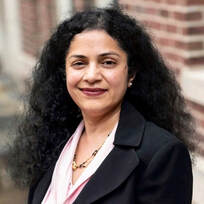
Asavari Manvikar, BAMS, MD-Ayu, Minnesota, USA - Global Ayurvedic Specialist, Board Certified Ayurvedic Doctor, Founder, Lead Faculty, Internship Mentor of Minnesota Institute of Ayurveda Asavari is a classically trained Ayurveda doctor with over 20 years of Ayurveda practice. She has a deep affection for Ayurveda. Asavari is a director of Ayuwellness. Holistic Wellness Center in Minneapolis. She helps her clients for restoring health and harmony through diet, lifestyle recommendations, and panchakarma treatments. She is a graduate faculty at the Center for Spirituality and Healing at the University of Minnesota. Her passion is to educate students about the holistic healing systems of Ayurveda and yoga.
Topic: Holistic Approach to NFLD-Non Alcoholic Fatty Liver Disease
Abstract: Nonalcoholic fatty liver disease (NAFLD) is the buildup of extra fat in liver cells that is not caused by alcohol. It is normal for the liver to contain some fat. However, if more than 5% – 10% percent of the liver's weight is fat, then it is called a fatty liver (steatosis). Ayurveda considers the liver as the main organ where pitta dosha, the fire element is located. Digestive fire (Pachakagni) manifests in seven forms called dhatwagnis. Food is converted into ahara rasa by pachakagni or digestive fire. Then ahara rasa is converted into seven body tissues. Since the liver is the main organ where the metabolism of fat happens, fat deposition in the liver impairs every metabolic activity. Diet and lifestyle changes along with appropriate herbs can be helpful in improving metabolic functions and liver health. During the presentation, we will discuss a chronic case of NAFLD that improved with holistic interventions.
Topic: Holistic Approach to NFLD-Non Alcoholic Fatty Liver Disease
Abstract: Nonalcoholic fatty liver disease (NAFLD) is the buildup of extra fat in liver cells that is not caused by alcohol. It is normal for the liver to contain some fat. However, if more than 5% – 10% percent of the liver's weight is fat, then it is called a fatty liver (steatosis). Ayurveda considers the liver as the main organ where pitta dosha, the fire element is located. Digestive fire (Pachakagni) manifests in seven forms called dhatwagnis. Food is converted into ahara rasa by pachakagni or digestive fire. Then ahara rasa is converted into seven body tissues. Since the liver is the main organ where the metabolism of fat happens, fat deposition in the liver impairs every metabolic activity. Diet and lifestyle changes along with appropriate herbs can be helpful in improving metabolic functions and liver health. During the presentation, we will discuss a chronic case of NAFLD that improved with holistic interventions.
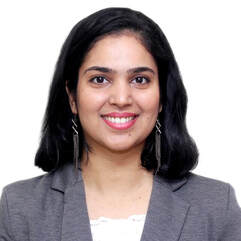
Devika Deshmukh, BAMS, MD-Ayu, Maharashtra, India - MD- Panchakarma, Ayurveda through SDM College of Ayurveda, Hassan. RGUHS University. Bangalore. Year 2014 Bachelor of Ayurvedic Medicine & Surgery through SDM College of Ayurveda, Hassan Kerala. RGUHS University. Bangalore. Year 2011, Certified Massage Therapist and Health Educator through National Holistic Institute, San Jose, California, USA. AMTA Nationally certified. Year 2015., Registered Master Ayurvedic Specialist # Reg no.1703-17. Association of Ayurvedic Professionals of North America. USA. Year 2017.
Expertise / Area of Specialization: Ayurveda & Prakruti Parikshan ie: Mind-Body Constitution Analysis, Pre-conceptual Panchakarma, Pre-natal & Post natal care, Panchakarma for Internal Detoxification & Weight Management, Ayurvedic Beauty Care, Integrative Medicine Yoga, Breathing & Meditative healing 1. Dr. Devika did her schooling from Shri Madhavrao Bhagwat High School, in Vile Parle & Sathaye College of Science, Mumbai. 2. She completed her Bachelor of Ayurvedic Medicine & Surgery [B.A.M.S] from S.D.M. College & Hospital of Ayurveda, Hassan, Karnataka, through Rajiv Gandhi University of Health Sciences, Bangalore, in 2011. 3. She did her MD in Pancha Karma from S.D.M. College & Hospital of Ayurveda, Hassan, Karnataka, through Rajiv Gandhi University of Health Sciences, Bangalore, 2014. Her thesis topic was 'Comparative study on the effect of Nasya Karma and Greeva Basti in the management of Greeva Hundanam w.s.r. to Cervical Spondylosis.' 4. She is a ‘State & Nationally Certified Massage Therapist & Health Educator’ [C.M.T] through National Holistic Institute, San Jose, California, since 2015. 5. She is a ‘Fellow of Institute of Indian Medicine’ [F.I.I.M] – since 2016. 6. She is also a ‘Registered Master Ayurvedic Specialist’ [R.M.A.S], certified through Association of Ayurvedic Professionals of North America [AAPNA] since 2017. 7. She has 12 years of experience in handling international clients.
Activities: 1. Author: - Under the guidance of Dr. P.H.Kulkarni she co-edited 2 books in 2016- a. Abhyanga Tantra – Ayurveda Massage., b. Yoga with Ayurveda. 2. Teaching: A) She is a Webinar Faculty at International University of Yoga & Ayurveda, Florida, USA since 2015 till date & conducts online courses for- a. Certified Ayurvedic Lifestyle Consultant [CALC] b. Certified Ayurvedic Practitioner [CAP] c. Ayurveda Nutritionist Certification [ALC] B) She is an expert consultant & webinar faculty at Satva.ai, a US based Ayurvedic wellness since 2020 & specializes in topics related to Pre-conceptual Panchakarma, Women’s wellness, Pre-natal & Post-natal Ayurvedic care, Healthy pregnancy & Healthy newborn care. C) Has been a trainer & teacher at Natural Medicine & Ayurveda Clinic, Academy & Spa, San Jose California since 2014 – 2017. She has taught various ayurvedic subjects, taken Ayurveda & Yoga workshops, taught Ayurvedic Cooking at various places through this academy in California. D) She carries 8 years of experience in teaching Ayurveda to layman & students of Ayurveda coming from India, US, UK Middlesex University & Europe to Kerala Ayurvedic Clinic Mumbai, SDM College of Ayurveda Hassan, Yogakshema Spa Hassan, Karnataka. E) She has 12 years of experience in handling international clients. She has spent 5 years in California providing Ayurvedic healthcare to the public.
Affiliations & Corresponding Responsibilities: Global Ayurveda Conferences. Pennsylvania, USA. Ayurvedic Teaching Faculty via Webinars. Since 2015. Council for Ayurveda Research, USA. Outreach committee member from 2015 to 2018. Admin panel research member since 2019. Association of Ayurvedic Professionals of North America. USA. Brand Ambassador, Since 2016.
Association of Ayurvedic Professionals of North America. USA. Life Member, since 2015., Kerala Ayurvedic Clinic, Vile Parle (East) Mumbai. Chief Physician & Panchakarma Consultant. Since 2019., Kerala Ayurvedic Clinic, Vile Parle (East) Mumbai. Online Consultant. Since 2015., Natural Medicine & Ayurveda Clinic, Academy & Spa. San Jose, California, USA. Healthcare Professional & Panchakarma Expert. Year 2014- 2018. Yogakshema Ayurveda Panchakarma Specialty Center, Hassan, India. Spa set up consultant & Training expert. Year 2013- 2014
3. Event Planning: Dr. Devika loves organizing & conducting meetings to help plan Ayurveda conferences in Bay Area, California.
4. Choreography: Dr. Devika leads an enthusiastic Folk & Semi classical dance group & they conduct various Cultural events in Bay Area, California.
Achievements: 1. Dr. Devika was Awarded the prestigious ‘Vagbhata Award 2016’ for excellence in Ayurvedic Teaching by Association of Ayurvedic Professionals of North America [AAPNA] in recognition of exceptional talent, efforts & erudition in Ayurvedic & Vedic Sciences at 18th International Conference at Bastyr University, Washington, USA.
2. She was conferred the title of ‘Ambassador of AAPNA’ by Association of Ayurvedic Professionals of North America in 2017 for her dedication & continual efforts in promotion of Ayurveda in the West & excellence in teaching, by Dr. Shekhar Annambhotla [MD Ayurveda, RMAS, CMT]
3. Her expertise in Pancha Karma was valued & recognized by Natural Medicine & Ayurveda Clinic, Academy & Wellness Spa with a Certificate of Appreciation in honour of her ‘Healer Heart & Dynamism’ by Dr. Vivek Shanbhag [MD Ayurveda, ND]
4. She was the Cultural Secretary for S.D.M. College of Ayurveda, Hassan. She has won awards in Interstate & University Dance Competitions.
5. She loves sports & has played for Interschool & Intercollege Volleyball teams. She received a Gold Medal in Maharashtra State Level Open-Air Rifle Shooting.
6. Presentations: She has presented various papers in National & International Ayurveda Conferences on the topics of Pancha Karma, Women’s Wellness, Musculo Skeletal, Auto Immune & Lymphatic System disorders, Massage therapy, Infertility, Seasonal Detoxification, Healthy Pregnancy & Healthy Newborn.
7. She was bestowed the title of ‘Best Fit’ & won the crown as “Mrs. Vile Parle” in Oct 2019, for her fitness, oratory skills & people presence. This event was conducted by Seabuzz.
8. She was invited by her Local Community of Vile Parle, Mumbai to take regular Wellness Wednesdays Live Facebook sessions for 30 mins every Wednesdays where she offers free of cost education & awareness of Ayurveda, Yoga and Panchakarma alongwith tips to protect community health. She is one of the most sought after Ayurvedic Panchakarma Physician, Teacher & Counsellor in Mumbai.
Topic: Shodhana Chikitsa in Non-Alcoholic Fatty Liver Disease
Abstract: Live is the most important of all organs in human body systems. Fatty liver in non-alcoholic cases is on a rise due to lifestyles, food & working habits & irregular sleep patters. Ayurveda offers a true cleaning & liver metabolism resetting solution to this problem through classical Shodhana techniques. Statistics say that middle aged women are more affected in this disorder than men & here I will be sharing some experience & success cases where non-alcoholic fatty liver disorder was solved through dietary regimen post panchakarma cleansing.
Expertise / Area of Specialization: Ayurveda & Prakruti Parikshan ie: Mind-Body Constitution Analysis, Pre-conceptual Panchakarma, Pre-natal & Post natal care, Panchakarma for Internal Detoxification & Weight Management, Ayurvedic Beauty Care, Integrative Medicine Yoga, Breathing & Meditative healing 1. Dr. Devika did her schooling from Shri Madhavrao Bhagwat High School, in Vile Parle & Sathaye College of Science, Mumbai. 2. She completed her Bachelor of Ayurvedic Medicine & Surgery [B.A.M.S] from S.D.M. College & Hospital of Ayurveda, Hassan, Karnataka, through Rajiv Gandhi University of Health Sciences, Bangalore, in 2011. 3. She did her MD in Pancha Karma from S.D.M. College & Hospital of Ayurveda, Hassan, Karnataka, through Rajiv Gandhi University of Health Sciences, Bangalore, 2014. Her thesis topic was 'Comparative study on the effect of Nasya Karma and Greeva Basti in the management of Greeva Hundanam w.s.r. to Cervical Spondylosis.' 4. She is a ‘State & Nationally Certified Massage Therapist & Health Educator’ [C.M.T] through National Holistic Institute, San Jose, California, since 2015. 5. She is a ‘Fellow of Institute of Indian Medicine’ [F.I.I.M] – since 2016. 6. She is also a ‘Registered Master Ayurvedic Specialist’ [R.M.A.S], certified through Association of Ayurvedic Professionals of North America [AAPNA] since 2017. 7. She has 12 years of experience in handling international clients.
Activities: 1. Author: - Under the guidance of Dr. P.H.Kulkarni she co-edited 2 books in 2016- a. Abhyanga Tantra – Ayurveda Massage., b. Yoga with Ayurveda. 2. Teaching: A) She is a Webinar Faculty at International University of Yoga & Ayurveda, Florida, USA since 2015 till date & conducts online courses for- a. Certified Ayurvedic Lifestyle Consultant [CALC] b. Certified Ayurvedic Practitioner [CAP] c. Ayurveda Nutritionist Certification [ALC] B) She is an expert consultant & webinar faculty at Satva.ai, a US based Ayurvedic wellness since 2020 & specializes in topics related to Pre-conceptual Panchakarma, Women’s wellness, Pre-natal & Post-natal Ayurvedic care, Healthy pregnancy & Healthy newborn care. C) Has been a trainer & teacher at Natural Medicine & Ayurveda Clinic, Academy & Spa, San Jose California since 2014 – 2017. She has taught various ayurvedic subjects, taken Ayurveda & Yoga workshops, taught Ayurvedic Cooking at various places through this academy in California. D) She carries 8 years of experience in teaching Ayurveda to layman & students of Ayurveda coming from India, US, UK Middlesex University & Europe to Kerala Ayurvedic Clinic Mumbai, SDM College of Ayurveda Hassan, Yogakshema Spa Hassan, Karnataka. E) She has 12 years of experience in handling international clients. She has spent 5 years in California providing Ayurvedic healthcare to the public.
Affiliations & Corresponding Responsibilities: Global Ayurveda Conferences. Pennsylvania, USA. Ayurvedic Teaching Faculty via Webinars. Since 2015. Council for Ayurveda Research, USA. Outreach committee member from 2015 to 2018. Admin panel research member since 2019. Association of Ayurvedic Professionals of North America. USA. Brand Ambassador, Since 2016.
Association of Ayurvedic Professionals of North America. USA. Life Member, since 2015., Kerala Ayurvedic Clinic, Vile Parle (East) Mumbai. Chief Physician & Panchakarma Consultant. Since 2019., Kerala Ayurvedic Clinic, Vile Parle (East) Mumbai. Online Consultant. Since 2015., Natural Medicine & Ayurveda Clinic, Academy & Spa. San Jose, California, USA. Healthcare Professional & Panchakarma Expert. Year 2014- 2018. Yogakshema Ayurveda Panchakarma Specialty Center, Hassan, India. Spa set up consultant & Training expert. Year 2013- 2014
3. Event Planning: Dr. Devika loves organizing & conducting meetings to help plan Ayurveda conferences in Bay Area, California.
4. Choreography: Dr. Devika leads an enthusiastic Folk & Semi classical dance group & they conduct various Cultural events in Bay Area, California.
Achievements: 1. Dr. Devika was Awarded the prestigious ‘Vagbhata Award 2016’ for excellence in Ayurvedic Teaching by Association of Ayurvedic Professionals of North America [AAPNA] in recognition of exceptional talent, efforts & erudition in Ayurvedic & Vedic Sciences at 18th International Conference at Bastyr University, Washington, USA.
2. She was conferred the title of ‘Ambassador of AAPNA’ by Association of Ayurvedic Professionals of North America in 2017 for her dedication & continual efforts in promotion of Ayurveda in the West & excellence in teaching, by Dr. Shekhar Annambhotla [MD Ayurveda, RMAS, CMT]
3. Her expertise in Pancha Karma was valued & recognized by Natural Medicine & Ayurveda Clinic, Academy & Wellness Spa with a Certificate of Appreciation in honour of her ‘Healer Heart & Dynamism’ by Dr. Vivek Shanbhag [MD Ayurveda, ND]
4. She was the Cultural Secretary for S.D.M. College of Ayurveda, Hassan. She has won awards in Interstate & University Dance Competitions.
5. She loves sports & has played for Interschool & Intercollege Volleyball teams. She received a Gold Medal in Maharashtra State Level Open-Air Rifle Shooting.
6. Presentations: She has presented various papers in National & International Ayurveda Conferences on the topics of Pancha Karma, Women’s Wellness, Musculo Skeletal, Auto Immune & Lymphatic System disorders, Massage therapy, Infertility, Seasonal Detoxification, Healthy Pregnancy & Healthy Newborn.
7. She was bestowed the title of ‘Best Fit’ & won the crown as “Mrs. Vile Parle” in Oct 2019, for her fitness, oratory skills & people presence. This event was conducted by Seabuzz.
8. She was invited by her Local Community of Vile Parle, Mumbai to take regular Wellness Wednesdays Live Facebook sessions for 30 mins every Wednesdays where she offers free of cost education & awareness of Ayurveda, Yoga and Panchakarma alongwith tips to protect community health. She is one of the most sought after Ayurvedic Panchakarma Physician, Teacher & Counsellor in Mumbai.
Topic: Shodhana Chikitsa in Non-Alcoholic Fatty Liver Disease
Abstract: Live is the most important of all organs in human body systems. Fatty liver in non-alcoholic cases is on a rise due to lifestyles, food & working habits & irregular sleep patters. Ayurveda offers a true cleaning & liver metabolism resetting solution to this problem through classical Shodhana techniques. Statistics say that middle aged women are more affected in this disorder than men & here I will be sharing some experience & success cases where non-alcoholic fatty liver disorder was solved through dietary regimen post panchakarma cleansing.
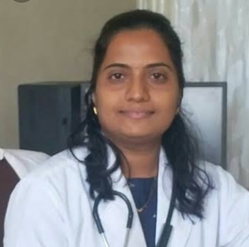
Suketha Shetty, BAMS, MD-Ayu, Karnataka, India - Working as an Associate professor in the department of Kayachikitsa(General medicine) from KLE University, Pursuing a Ph.D. in Diabetes subject from KLE university. Had Experience teaching Ayurveda medicine for 7 years and running a Diabetic specialty clinic for 7 years. Presented papers at national and international levels and have 8 publication (Both National and International level) Expertise in treating Diabetes and its complications, Hypertension, Metabolic syndrome, Lipid disorders, and Triglycerides, Liver disorders and Skin ailments
Topic: Ayurvedic Management of Alcoholic liver disease with ascites: A Case Report
Abstract: Alcoholic liver disease is a condition due to the intracellular accumulation of fat cells within the liver parenchyma making the liver enlarged. In Ayurveda, pathology can be understood as intake of alcohol does pitta dosha vriddi does the quantitative increase of water in the body leads to Rakta vriddi which in turn causes liver dysfunction and enlargement of the liver (Yakrutodara).In this presentation a case report of Alcoholic liver disease will be discussed with improvement in pre and post test changes along with the whole system approach of Ayurveda protocol applied in this case. This presentation will be helpful and take home message for the research practitioners.
Topic: Ayurvedic Management of Alcoholic liver disease with ascites: A Case Report
Abstract: Alcoholic liver disease is a condition due to the intracellular accumulation of fat cells within the liver parenchyma making the liver enlarged. In Ayurveda, pathology can be understood as intake of alcohol does pitta dosha vriddi does the quantitative increase of water in the body leads to Rakta vriddi which in turn causes liver dysfunction and enlargement of the liver (Yakrutodara).In this presentation a case report of Alcoholic liver disease will be discussed with improvement in pre and post test changes along with the whole system approach of Ayurveda protocol applied in this case. This presentation will be helpful and take home message for the research practitioners.
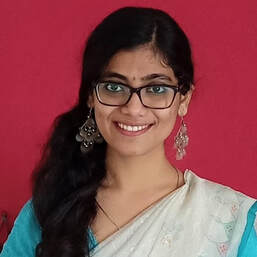
Harshitha Iyengar, BAMS, Karnataka, India - is graduated from Government Ayurvedic Medical College, Mysore, India with desire to explore the interconnectivity between Ayurveda and other holistic education including energy healing, mudra yoga therapy, bharathanatyam (vidwath), karnatic music all of which I’ve been professionally trained. Completed my internship after working in reputed hospitals like Government Ayurveda hospital, hi-tech panchakarma hospital, cheluvamba maternity, PKTB and chest diseases hospital, ED hospital , and rural services at various villages. She is working at Dr. Vijay’s ayurveda therapy and research center as physician. I've worked under the guidance of Dr Shantalapriyadarshini in various research projects like foldscope - Tapaschaskhu, granted by Government of India and research papers. I've also been involved in Health Awareness Camps and talks on various topics at schools and colleges with Senior Doctors, Health Check-up camps at rural and remote places and Yoga Camps . During the pandemic I’ve served as a volunteer at Apthamithra - Telemedicine.
Topic: Ayurveda medicines for liver care
Abstract: A number of clinical conditions simulating different liver diseases as known today are described in Ayurveda classics and subsequent writings. It is necessary to collect and relegate the relevant literature from the texts and to develop a viable therapeutics in order to reach the population affected with various liver diseases . Ayurveda is replete with various recent references and researches which testify the effect of various herbal , mineral and herbo-mineral drugs and formulations even in the most challenging cases. This presentation will be an insight on such classically mentioned liver care drugs , conceptual background along with the recent advancements and future clinical applications.
Topic: Ayurveda medicines for liver care
Abstract: A number of clinical conditions simulating different liver diseases as known today are described in Ayurveda classics and subsequent writings. It is necessary to collect and relegate the relevant literature from the texts and to develop a viable therapeutics in order to reach the population affected with various liver diseases . Ayurveda is replete with various recent references and researches which testify the effect of various herbal , mineral and herbo-mineral drugs and formulations even in the most challenging cases. This presentation will be an insight on such classically mentioned liver care drugs , conceptual background along with the recent advancements and future clinical applications.

Nilofar Shaikh, BAMS, MS-Ayu, Gujarat, India - Adept Ayurvedic doctor with clinical experience in field of genecology and obstetrics. At present working as Associate professor and consultant in Prasutitantra and streeroga department of JS Ayurved Mahavidhyalaya, Nadiad, Gujarat.Successfully treated many cases of infertility, PCOD, uterine fibroid, menstrual disorders and breast diseases. Appointed as PI (Primary Investigator) in two research projects on cervical cell dysplasia and healthy progeny through ayurveda. Delivered many guest lecturers as subject expert at SATCOM, ECHO Ayursajeevaniyam and Diksha E learning Platforms. Published many research articles in peer reviewed scientific journals and appointed as reviewer in J-AIM. For benefit of society, various awareness lectures on adolescence health, gynecological cancer, menopause and infertility were delivered at colleges, schools and NGOs like rotary club, lions club, JCI, senior citizen club etc.
Topic: Intra hepatic Cholestasis of Pregnancy (ICP) and Ayurveda
Abstract: Intra hepatic cholestasis (ICP) is the second most common cause of jaundice in pregnancy. The stasis of bile with rise in conjugated bilirubin is probably due to excess circulating estrogen. Genetic, familial and abnormal progesterone metabolism have been observed. The manifestations of ICP usually appear in the last trimester. The onset is insidious and Pruritus is the primary clinical symptom of ICP. There may be weakness, nausea, slight jaundice or even vomiting are found with pruritus. There is rise in the levels of AST, ALT and serum alkaline phosphatase. There are increased risks of preterm labor, low birth weight babies, IUFD , meconium stained liquor and postpartum hemorrhage. The features of Intra hepatic cholestasis subside within two weeks postpartum. In ayurveda, treatment of Garbhini Kamala (Jaundice during pregnancy) is described in Kashyapa Samhita. The drugs who have Mridu pita virechaka (Mild laxative) and Raktashodhaka (Blood Purifiers) properties may help to reduce the symptoms of Intra hepatic cholestasis during last trimester.
Topic: Intra hepatic Cholestasis of Pregnancy (ICP) and Ayurveda
Abstract: Intra hepatic cholestasis (ICP) is the second most common cause of jaundice in pregnancy. The stasis of bile with rise in conjugated bilirubin is probably due to excess circulating estrogen. Genetic, familial and abnormal progesterone metabolism have been observed. The manifestations of ICP usually appear in the last trimester. The onset is insidious and Pruritus is the primary clinical symptom of ICP. There may be weakness, nausea, slight jaundice or even vomiting are found with pruritus. There is rise in the levels of AST, ALT and serum alkaline phosphatase. There are increased risks of preterm labor, low birth weight babies, IUFD , meconium stained liquor and postpartum hemorrhage. The features of Intra hepatic cholestasis subside within two weeks postpartum. In ayurveda, treatment of Garbhini Kamala (Jaundice during pregnancy) is described in Kashyapa Samhita. The drugs who have Mridu pita virechaka (Mild laxative) and Raktashodhaka (Blood Purifiers) properties may help to reduce the symptoms of Intra hepatic cholestasis during last trimester.
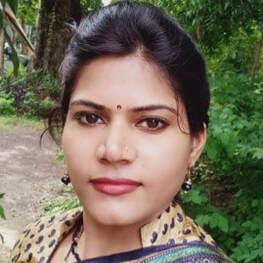
Rashmi Gupta, BAMS, MS-Ayu, PhD-Ayu, Uttar Pradesh, India - Associate Professor, Department of Shalya Tantra, Faculty of Ayurveda, IMS BHU, Varanasi (UP), India. I have done PG and PhD in Shalya Tantra from IMS BHU & my research was on Gall stone, which was an experimental as well as clinical study and found very effective result. Now, I am working on an Project in which I have evaluate effectivity and efficacy of Ayurvedic Formulations on Breast Cancer. My area of interest in the field of Anorectal Disorders, Ayurvedic Cancer Management, Wound Management etc.
Topic: Ayurvedic Key Management of Liver Cirrhosis
Abstract: Liver Cirrhosis is bad prognostic disease with unsuccessful treatment and landed with death of patient. But Ayurveda has kept potency to treating the liver cirrhosis without any significant complication. Patient of liver cirrhosis will be presented as a different clinical presentations which not similar to all. As like some are presented with Hematemesis, Malena, Ascites, Pancytopenia, Anemia, Chronic Constipation, Hepatic encephalopathy, Hepato-renal failure. All above clinical findings are not be presented with every patient. Ayurveda has explained all the clinical findings under the headings of varies diseases. Ayurvedic treatment protocol will be effective when patient will be treated with their clinical presentations. Many classical formulations are available & have been used for liver cirrhosis are Raktapittantak Lauha, Bolaparpati, Chausathaprahari pippali, Kalmeghnavayas Lauha, Tamra Bhasma & Trailokyachintamani Rasa etc. The details explanations of formulations, their contents, mechanism of action, uses as per clinical presentations will be discussed.
Topic: Ayurvedic Key Management of Liver Cirrhosis
Abstract: Liver Cirrhosis is bad prognostic disease with unsuccessful treatment and landed with death of patient. But Ayurveda has kept potency to treating the liver cirrhosis without any significant complication. Patient of liver cirrhosis will be presented as a different clinical presentations which not similar to all. As like some are presented with Hematemesis, Malena, Ascites, Pancytopenia, Anemia, Chronic Constipation, Hepatic encephalopathy, Hepato-renal failure. All above clinical findings are not be presented with every patient. Ayurveda has explained all the clinical findings under the headings of varies diseases. Ayurvedic treatment protocol will be effective when patient will be treated with their clinical presentations. Many classical formulations are available & have been used for liver cirrhosis are Raktapittantak Lauha, Bolaparpati, Chausathaprahari pippali, Kalmeghnavayas Lauha, Tamra Bhasma & Trailokyachintamani Rasa etc. The details explanations of formulations, their contents, mechanism of action, uses as per clinical presentations will be discussed.
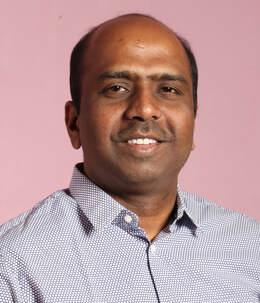
Sathya N Dornala, BAMS, MD-Ayu, PhD-Ayu, New Delhi, India - PG Diploma in Hospital & Healthcare Management (IGNOU)., Vaidya-Scientist Fellow (ITD-HST, Bengaluru).,Certificate in Health Research Fundamentals (CHRF-ICMR)., Online certification in “Writing in the Sciences” & “Statistics in Medicine” from Stanford University through Coursera Inc. Presently working as “Panchakarma Specialist” at Swami Vivekanand Ayurvedic Panchakarma Hospital, Dilshad Garden, Delhi – 95. Recipient of Dhanwantari Award (2018) for Excellence in Ayurvedic Practice by Association of Ayurvedic Professionals of North America (AAPNA); Pranacharya Award (2017) by Sri Indraprasthiya Vaidya Sabha – Delhi chapter of All India Ayurvedic Congress, New Delhi; Dhanwantari Award (2016) for Excellence in Ayurvedic Practice by AAPNA; Eminent Speaker award (2016) from Integrated Medical Association - AYUS, Delhi; “Honorary Professor” title from Maharishi European Research University (MERU), Switzerland (2015); International Aryabhatta Award (2009) for excellence in Ayurvedic Research by AAPNA & Best International White Paper Award (2009) from TAFSA (The Ayurvedic Foundation of South Africa). Authored 5 books, 50 scientific articles, delivered many lectures at various national and international platforms. In toto, versatile Ayurvedic physician, renowned Academician, dedicated Researcher, erudite Scholar, excellent orator, and proactive thinker in the field of Ayurveda.
Topic: Biliary colic and calculi & Ayurvedic interventions
Abstract: Gallstones are collections of solid material (predominantly crystals of cholesterol) in the gallbladder. The liver can secrete too much cholesterol, which is carried with bile to the gallbladder, where the excess cholesterol forms solid particles and accumulates. About 80% of people with gallstones do not have any symptoms for many years, if ever, particularly if the gallstones remain in the gallbladder. Gallstones may cause pain. Pain develops when the stones pass from the gallbladder into the cystic duct, common bile duct, or ampulla of Vater and block the duct. Then the gallbladder swells, causing pain called biliary colic. If gallstones cause disruptive, recurring episodes of pain, surgical removal of the gallbladder (cholecystectomy) is only the option. Clinical experiences establish that Ayurvedic drugs along with dietary modification are an alternative to the surgical management of biliary calculi.
Topic: Biliary colic and calculi & Ayurvedic interventions
Abstract: Gallstones are collections of solid material (predominantly crystals of cholesterol) in the gallbladder. The liver can secrete too much cholesterol, which is carried with bile to the gallbladder, where the excess cholesterol forms solid particles and accumulates. About 80% of people with gallstones do not have any symptoms for many years, if ever, particularly if the gallstones remain in the gallbladder. Gallstones may cause pain. Pain develops when the stones pass from the gallbladder into the cystic duct, common bile duct, or ampulla of Vater and block the duct. Then the gallbladder swells, causing pain called biliary colic. If gallstones cause disruptive, recurring episodes of pain, surgical removal of the gallbladder (cholecystectomy) is only the option. Clinical experiences establish that Ayurvedic drugs along with dietary modification are an alternative to the surgical management of biliary calculi.

